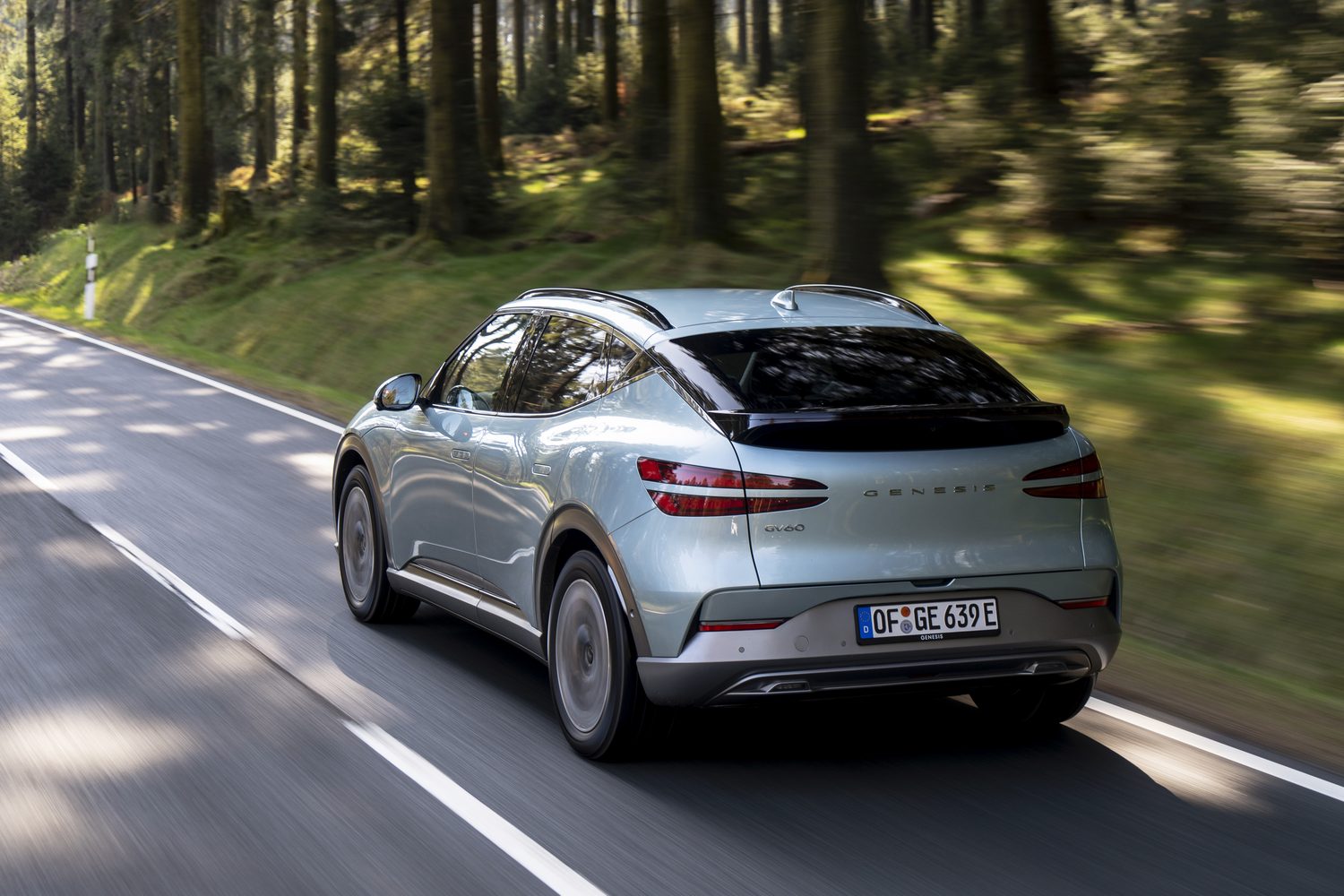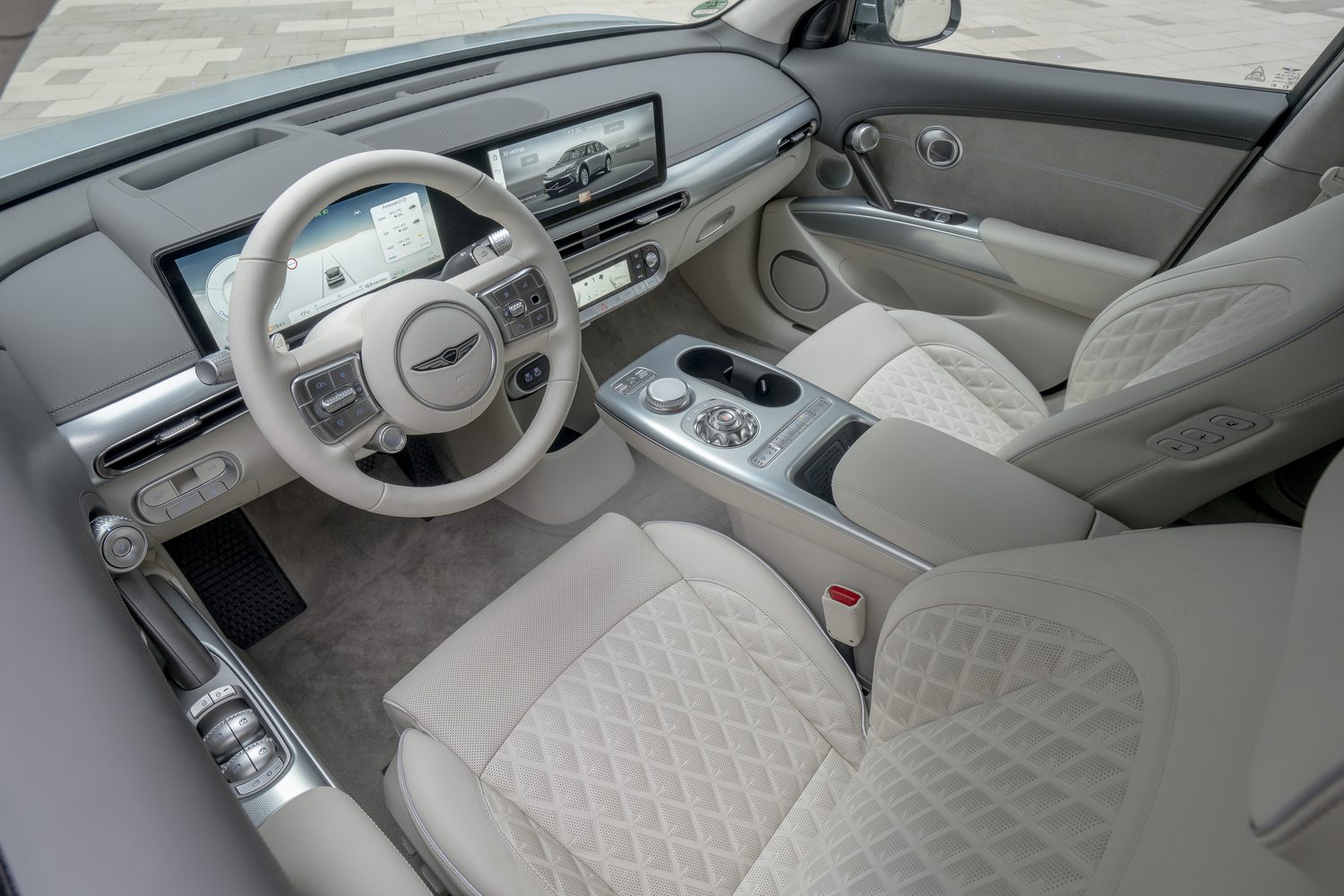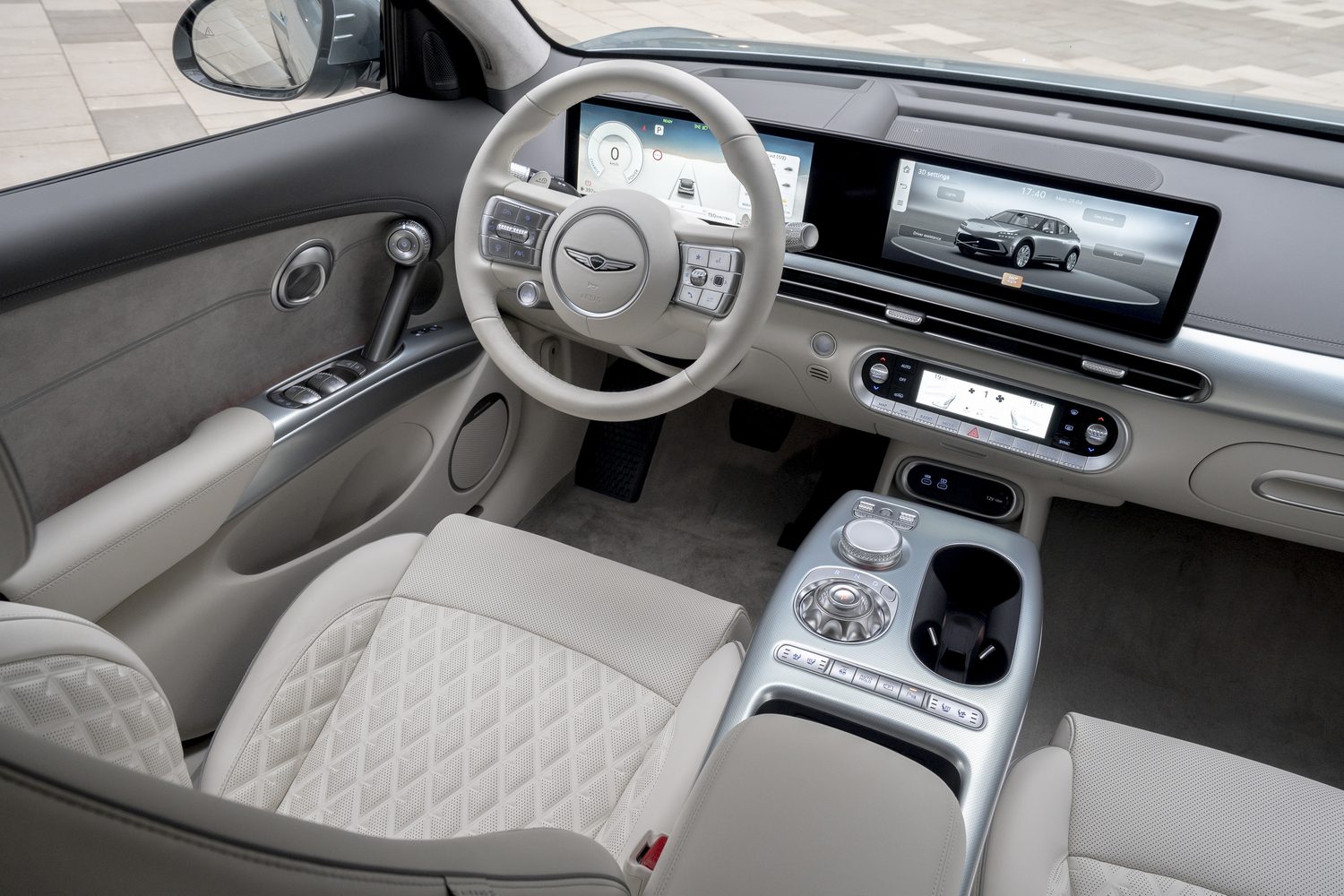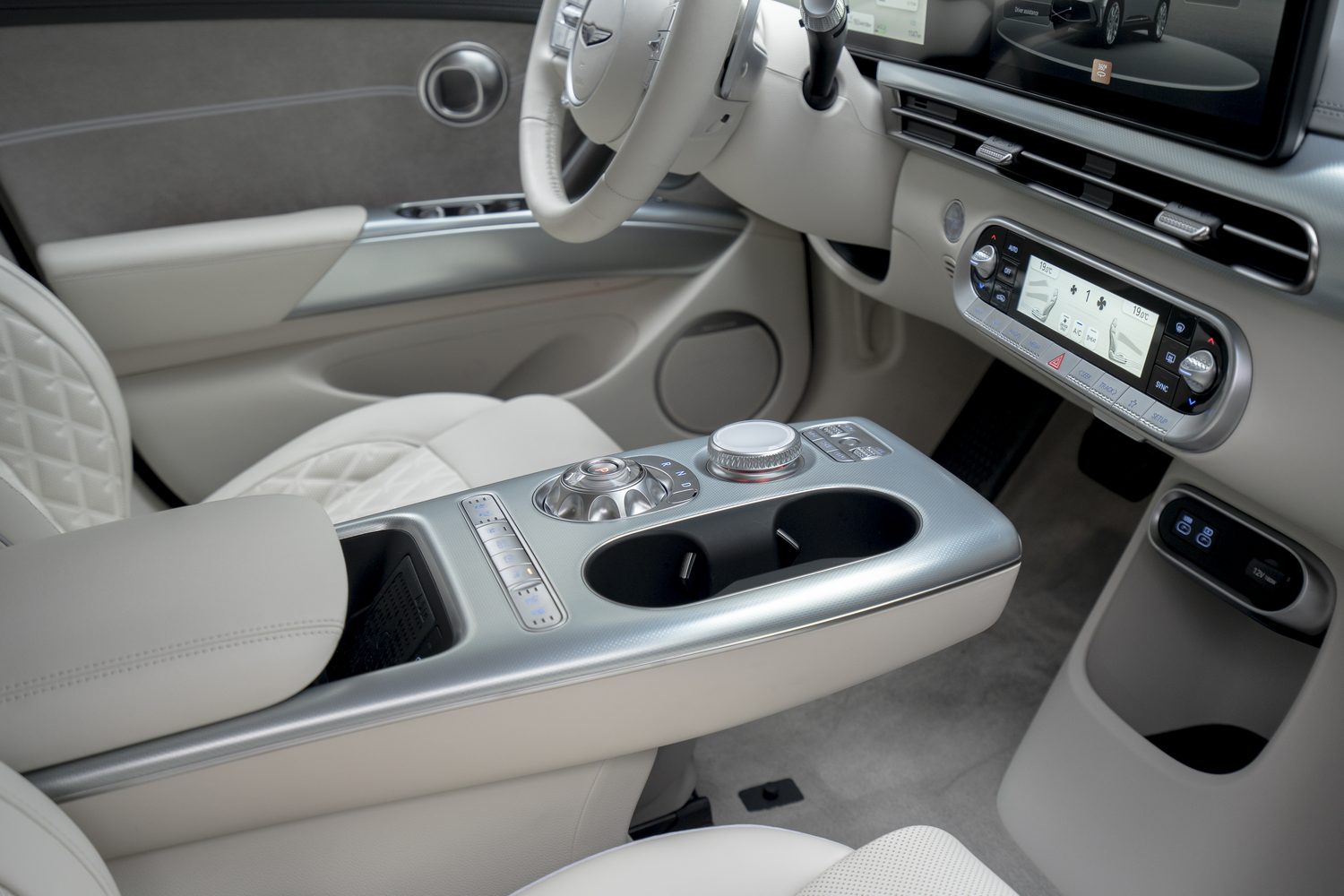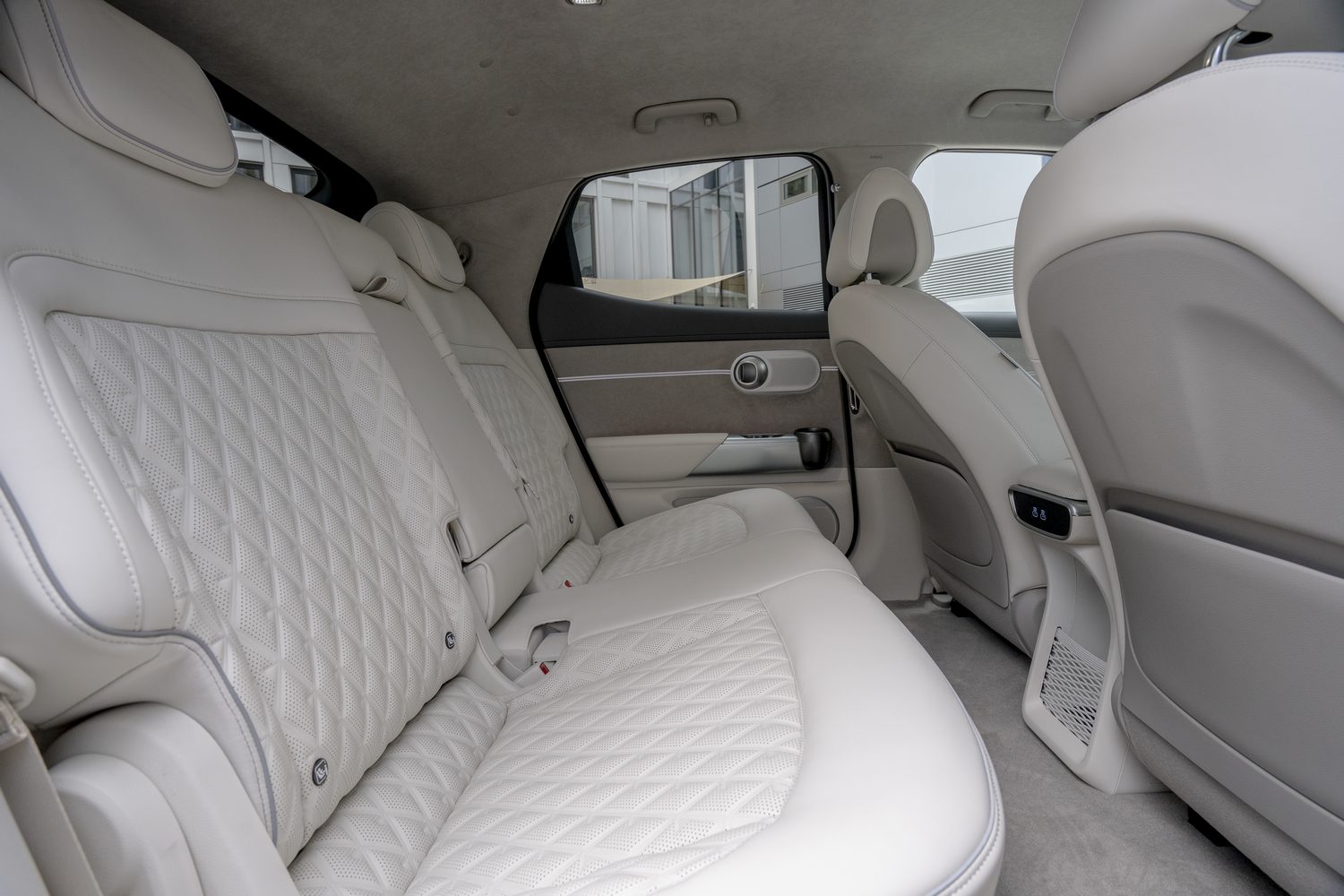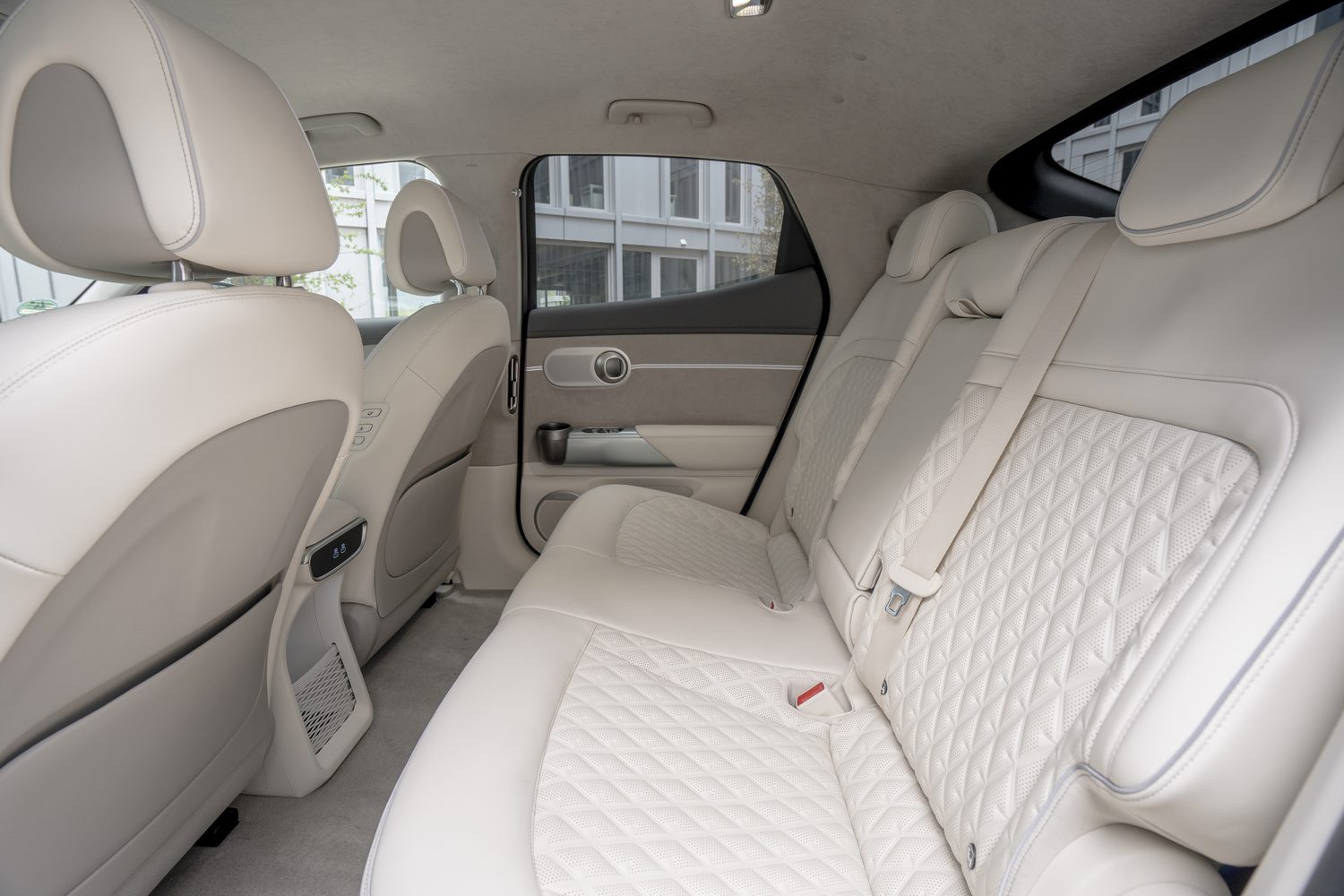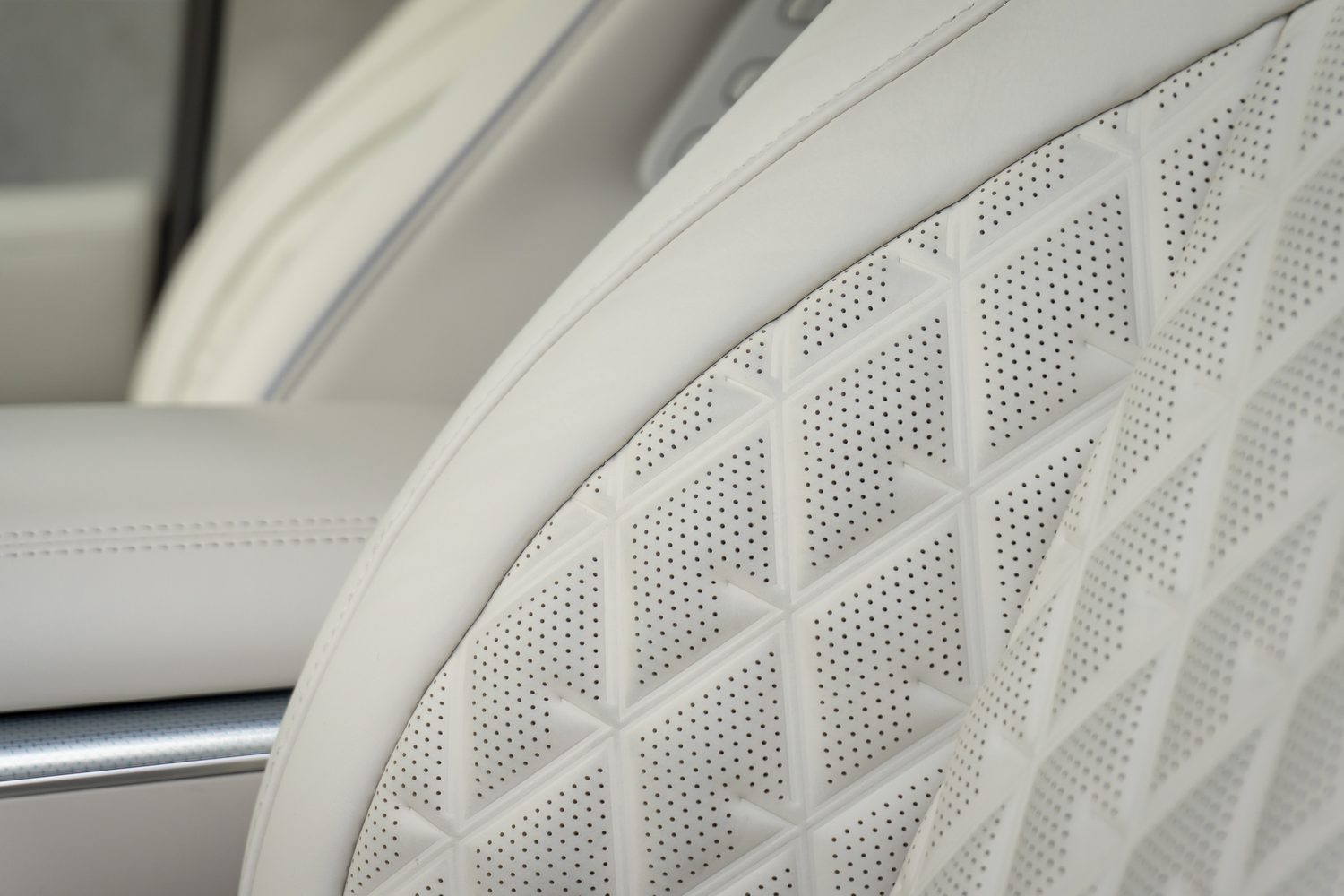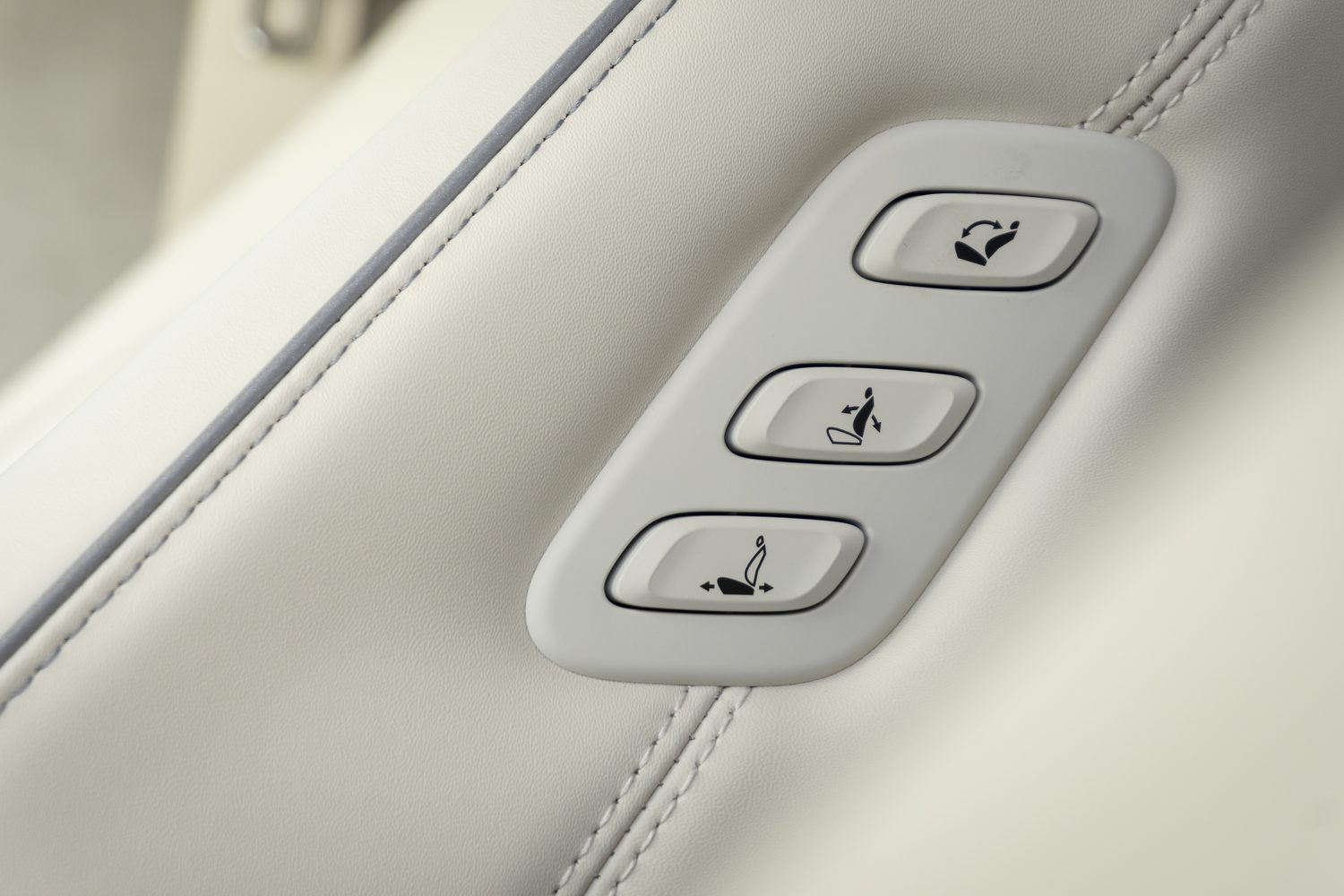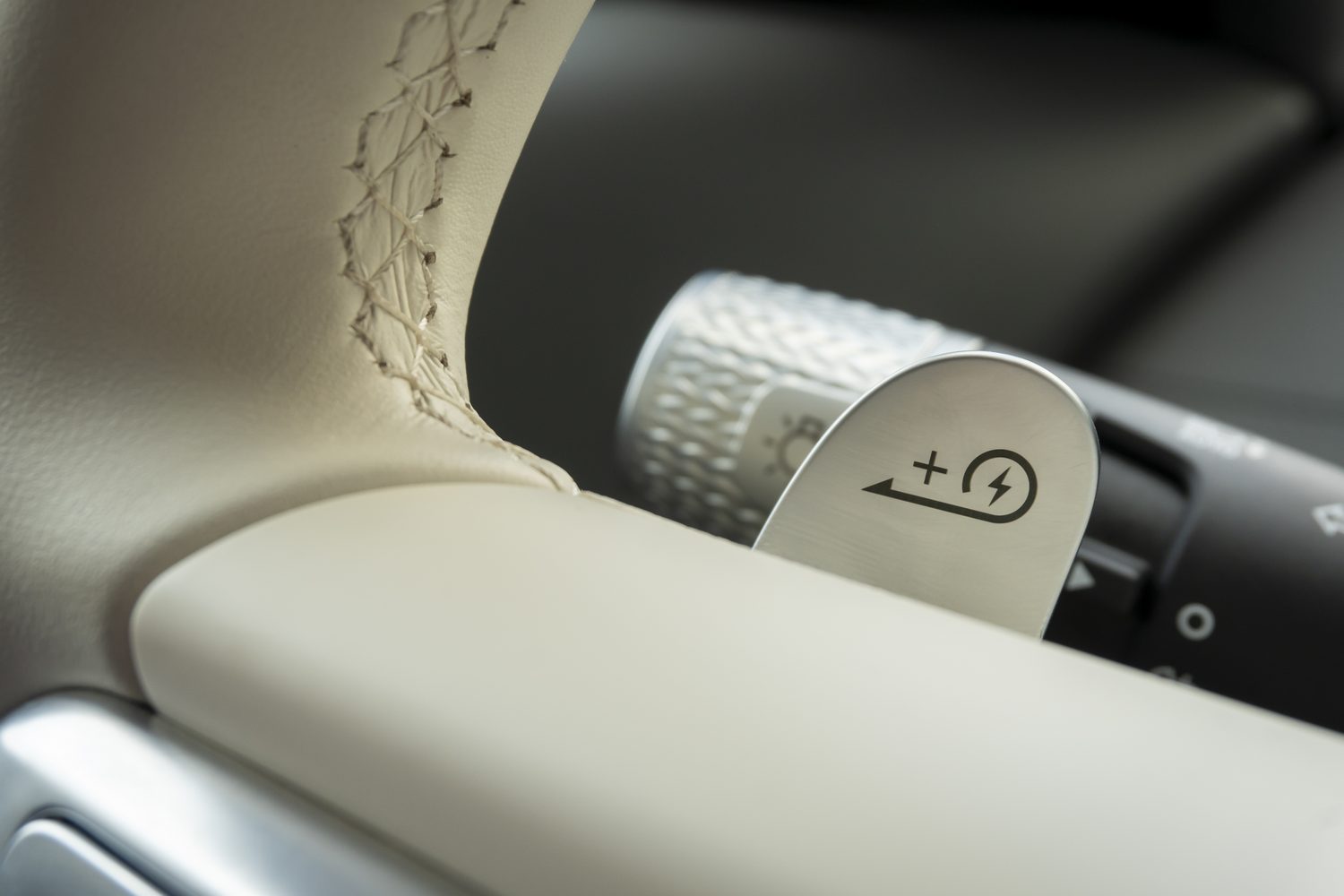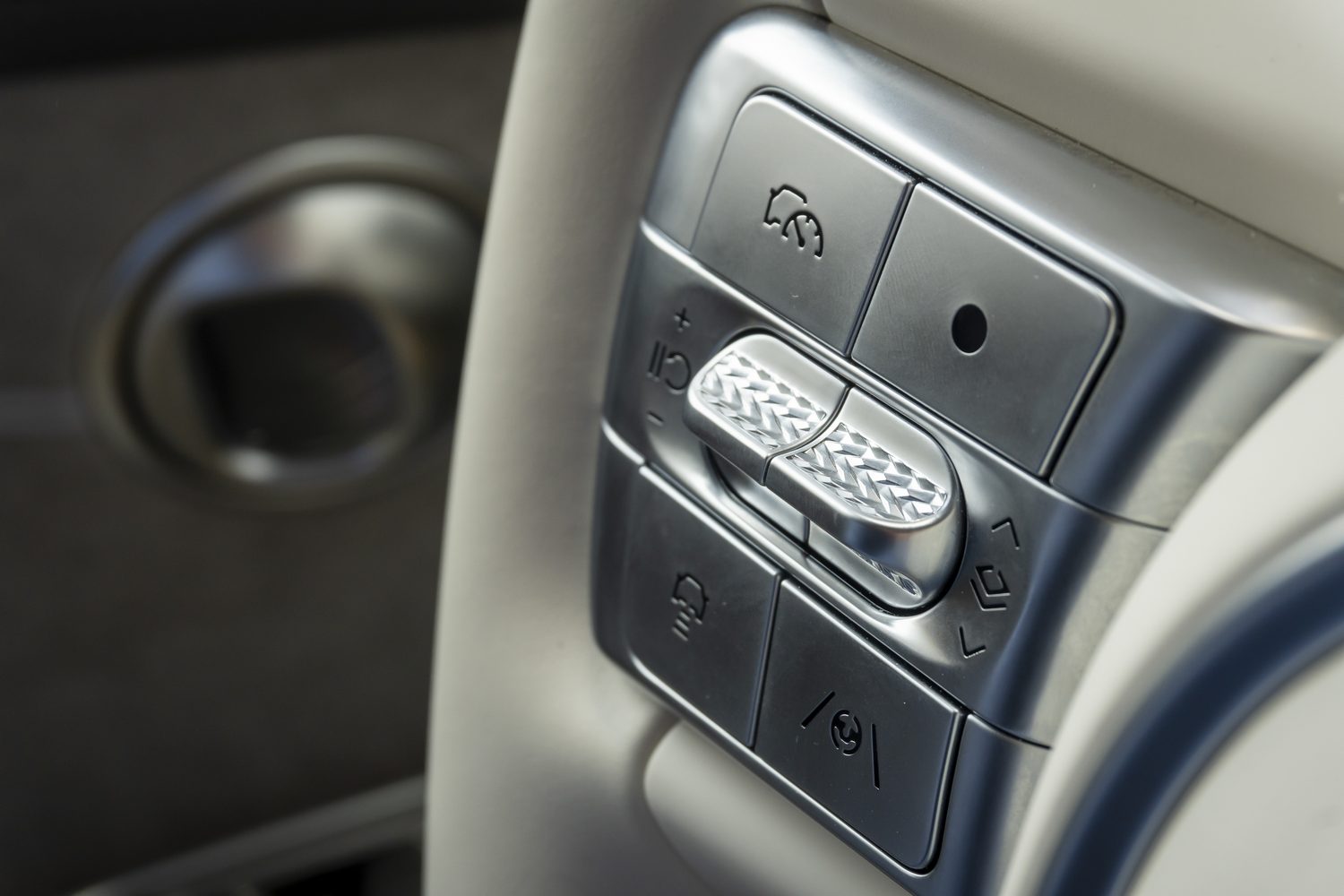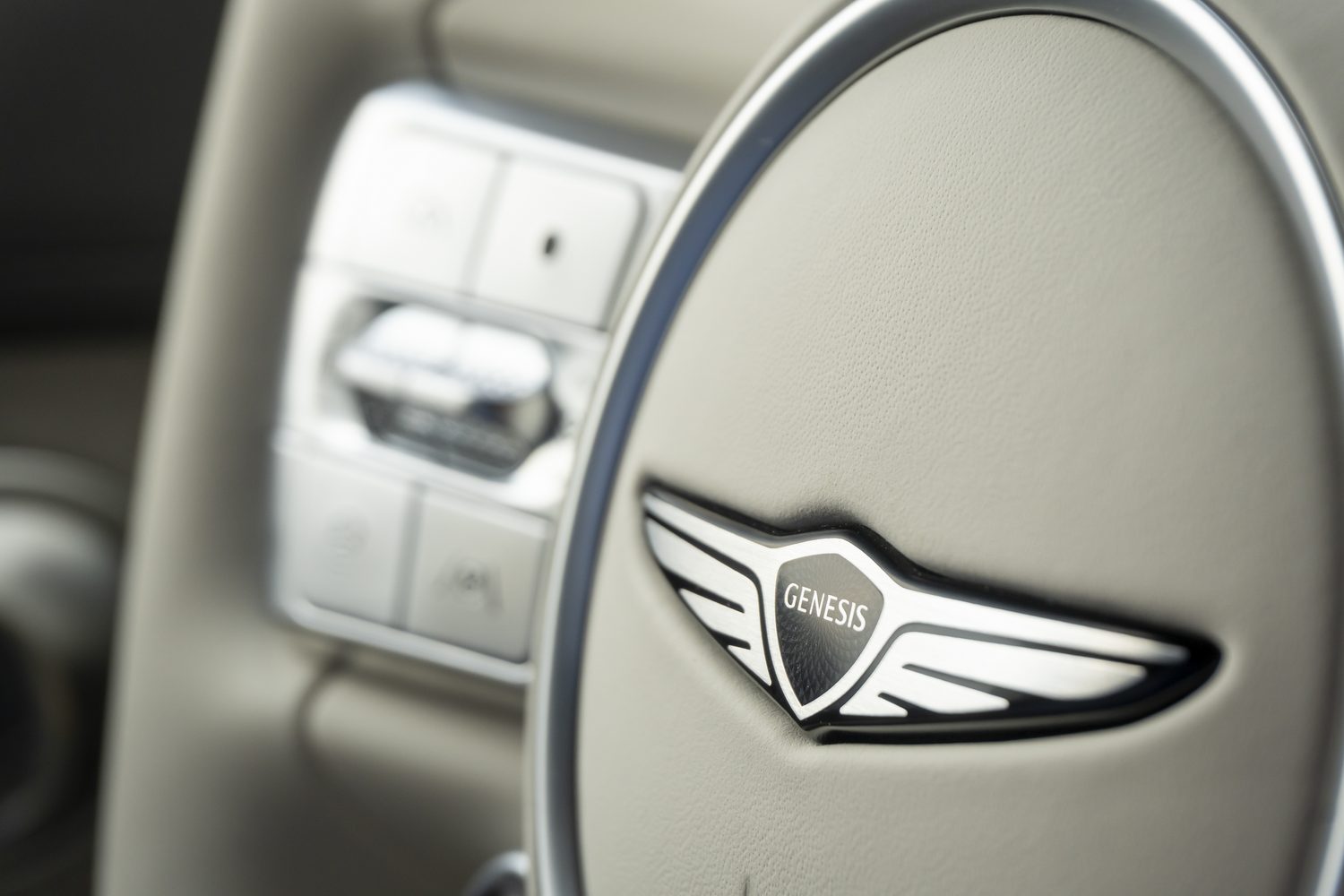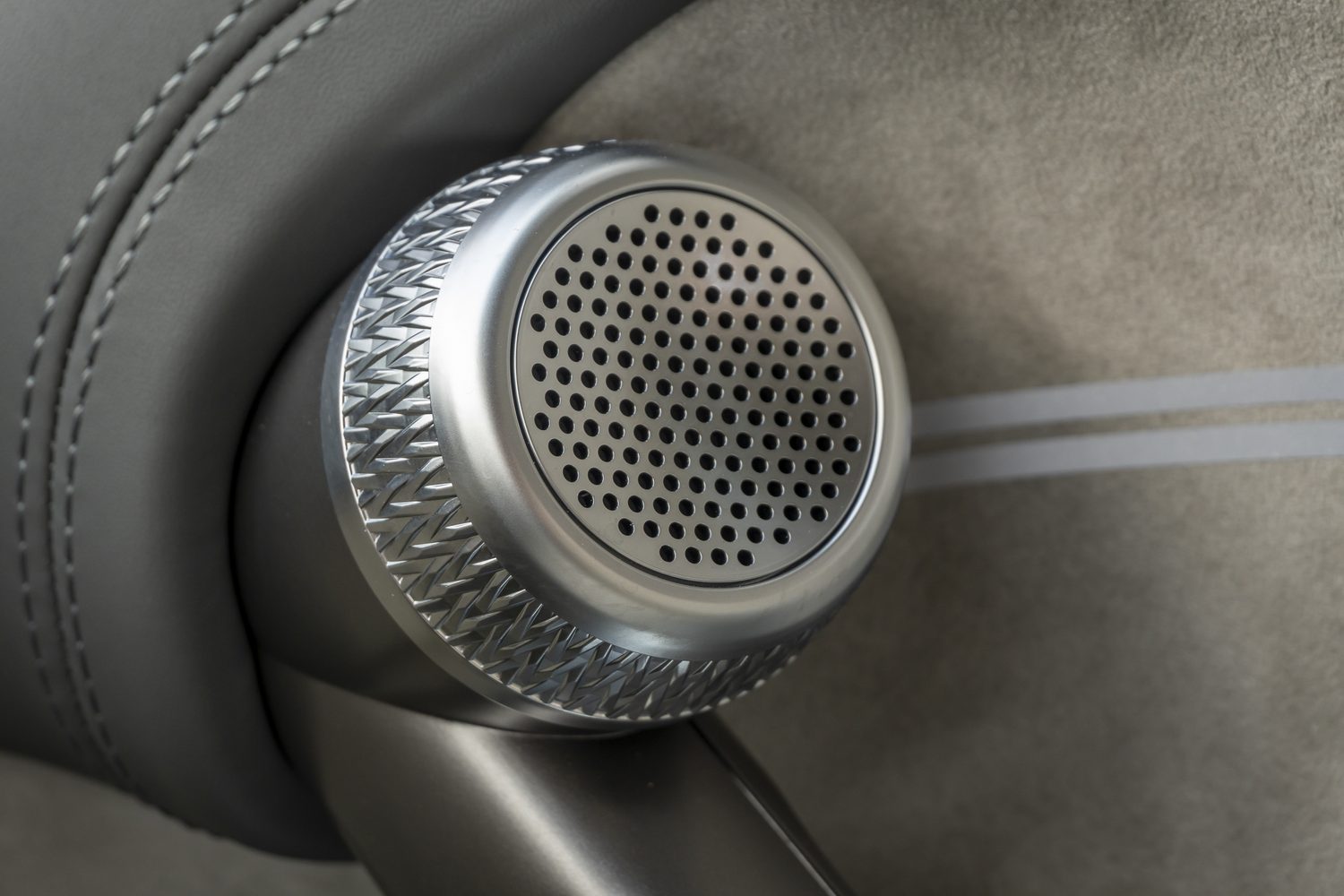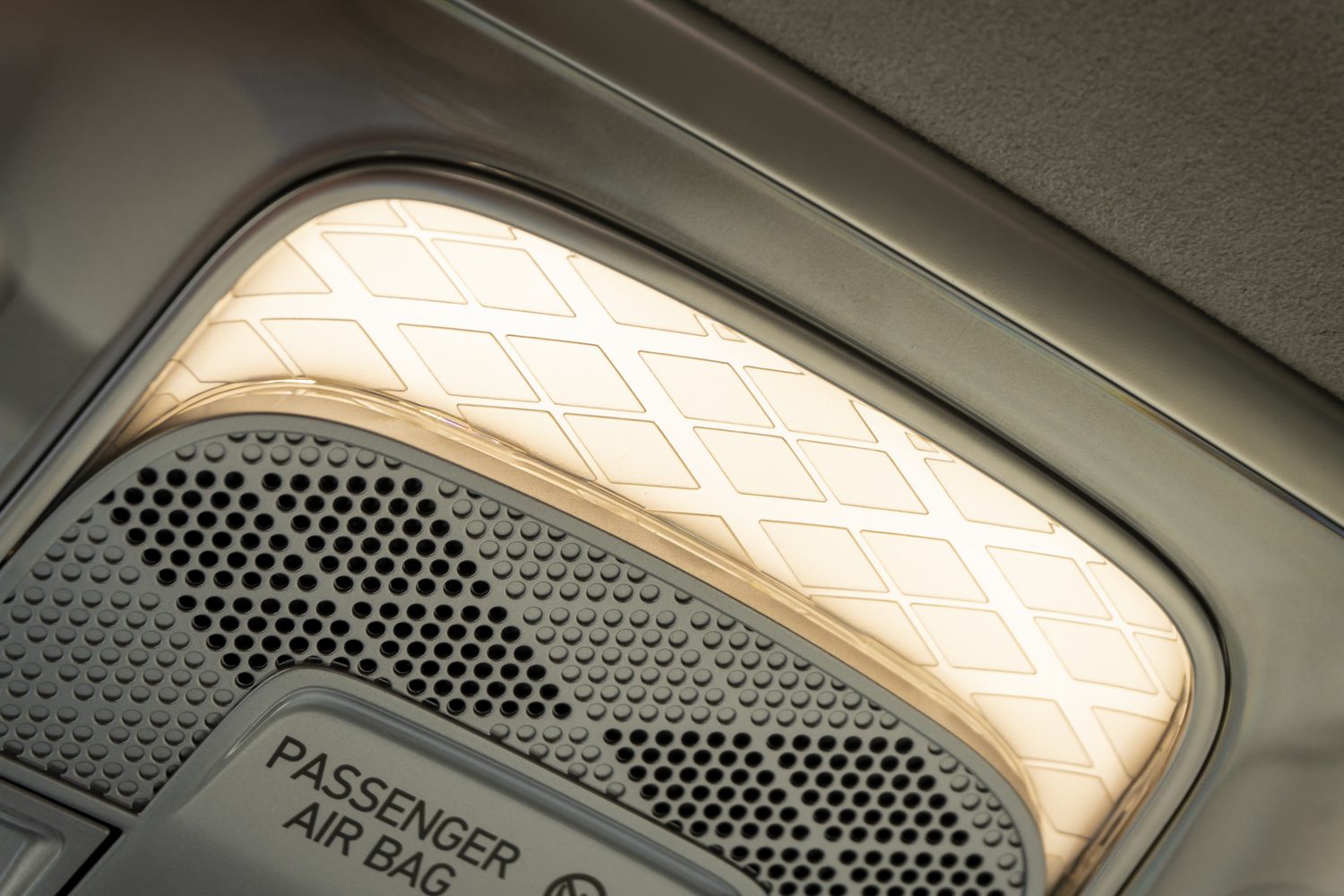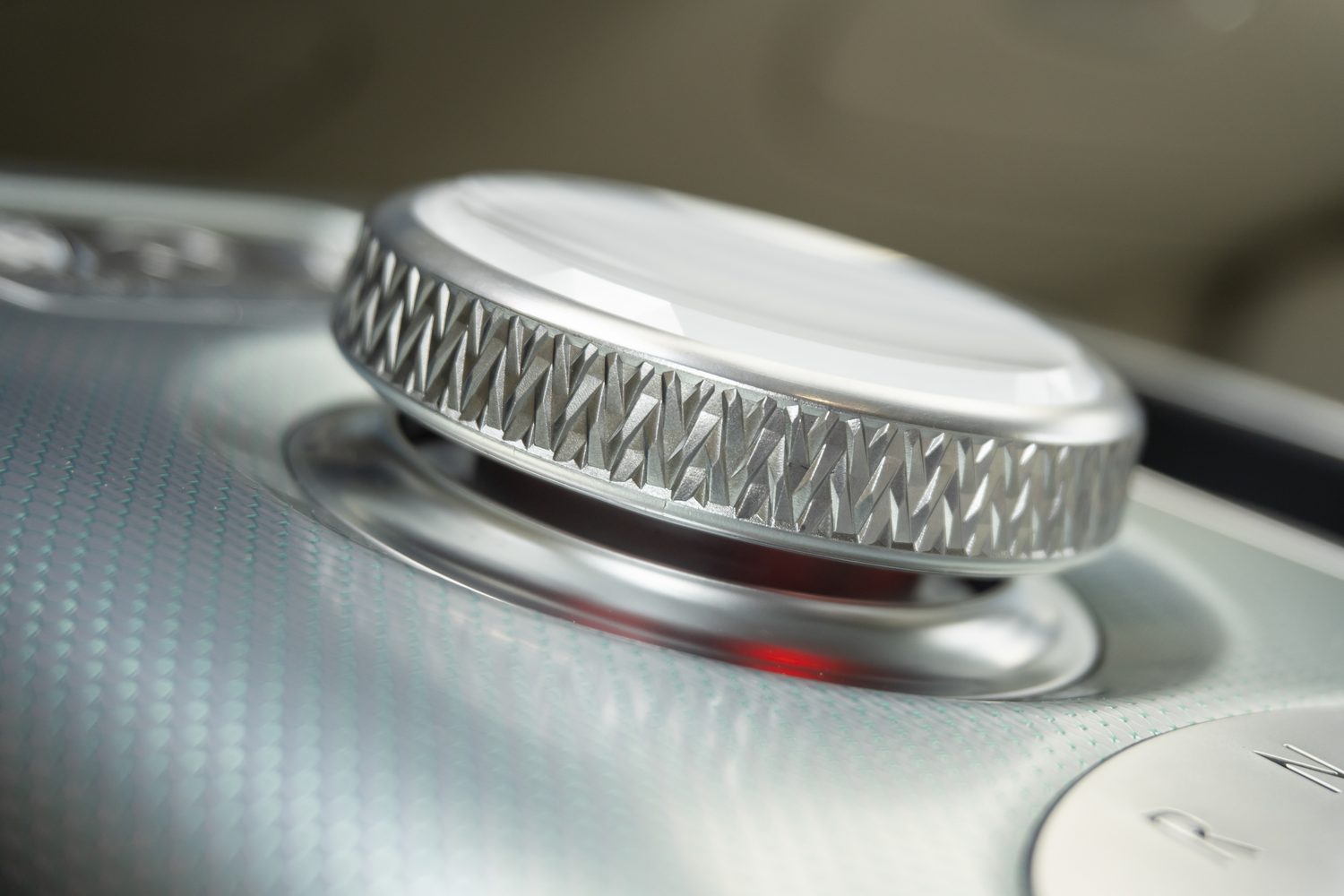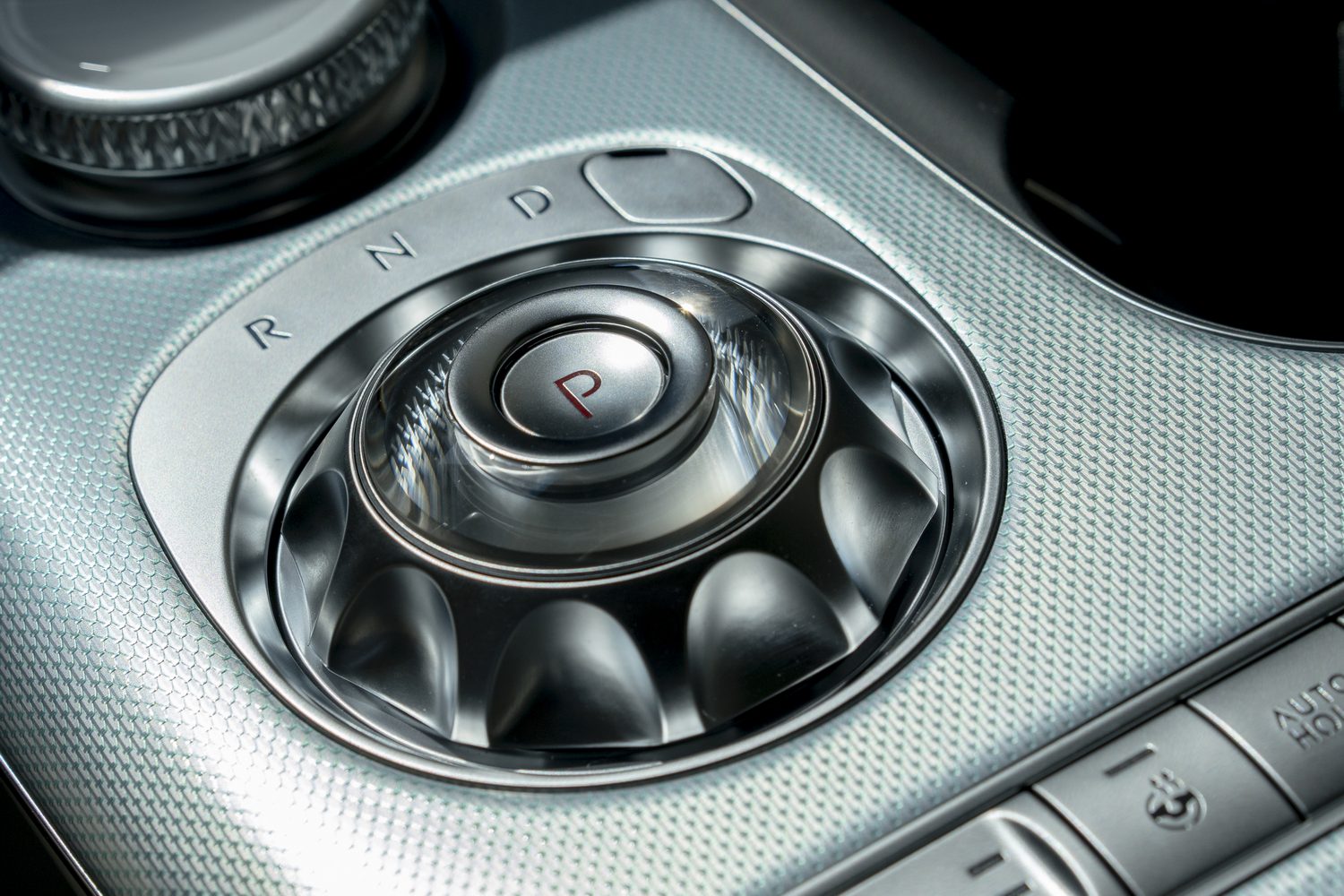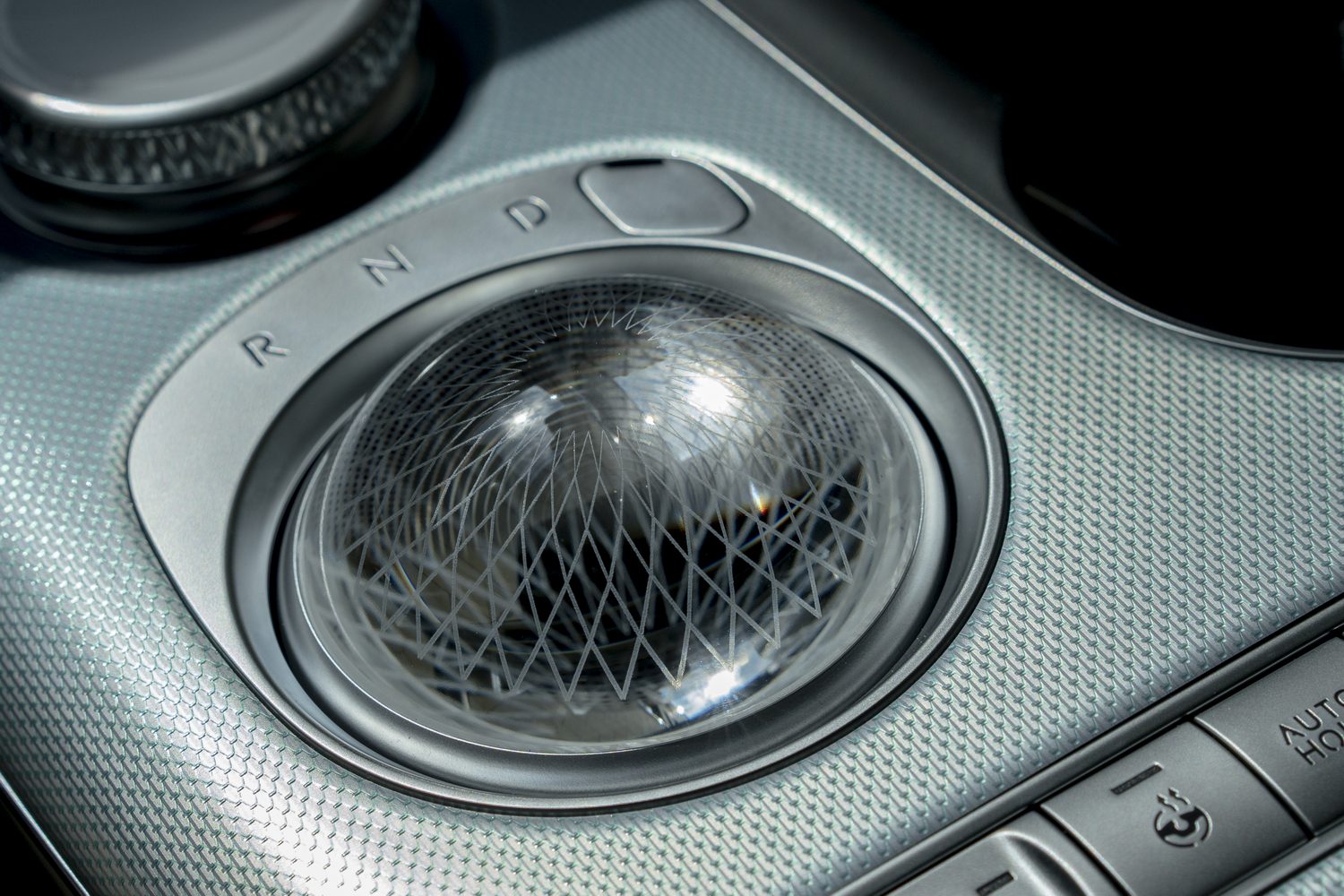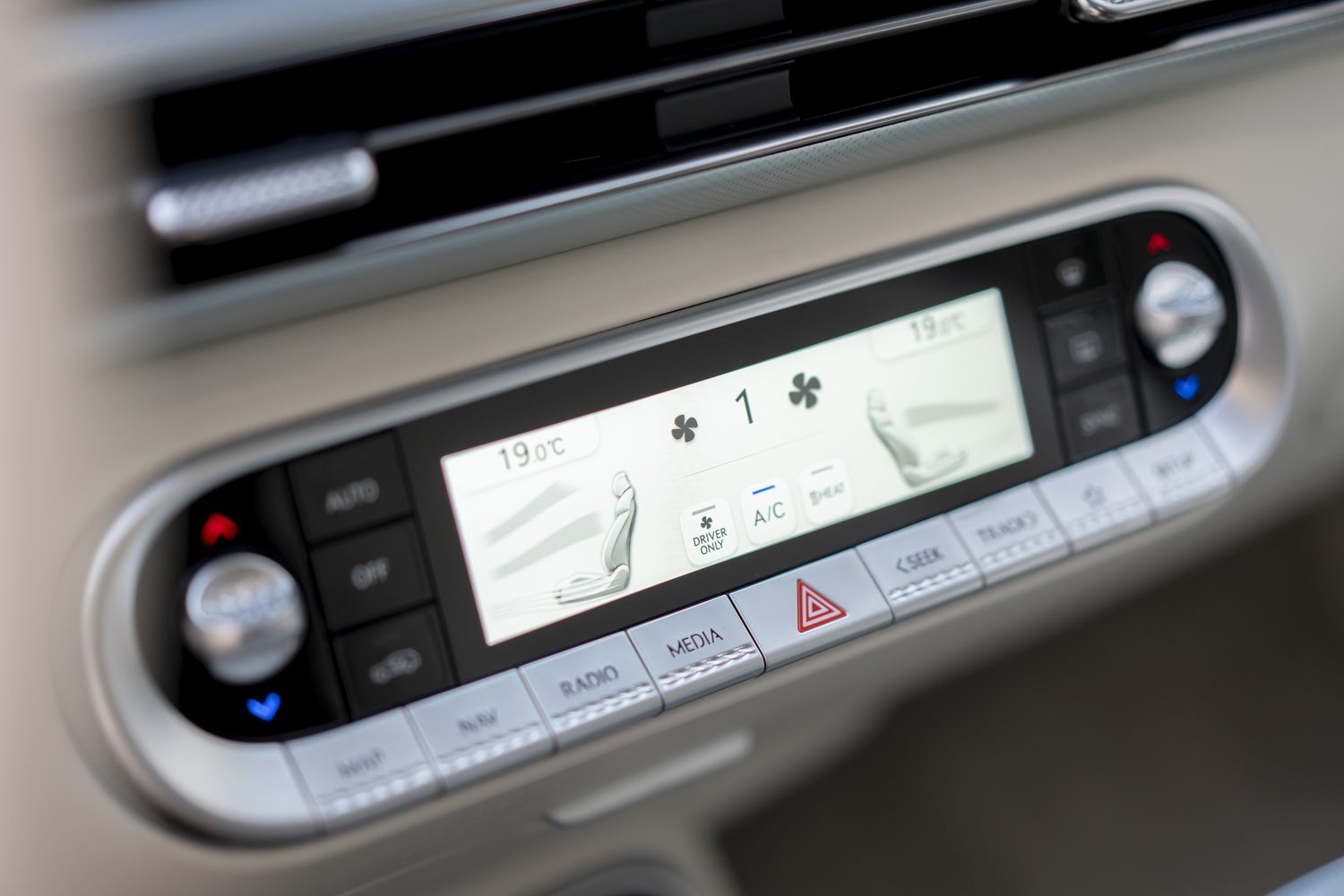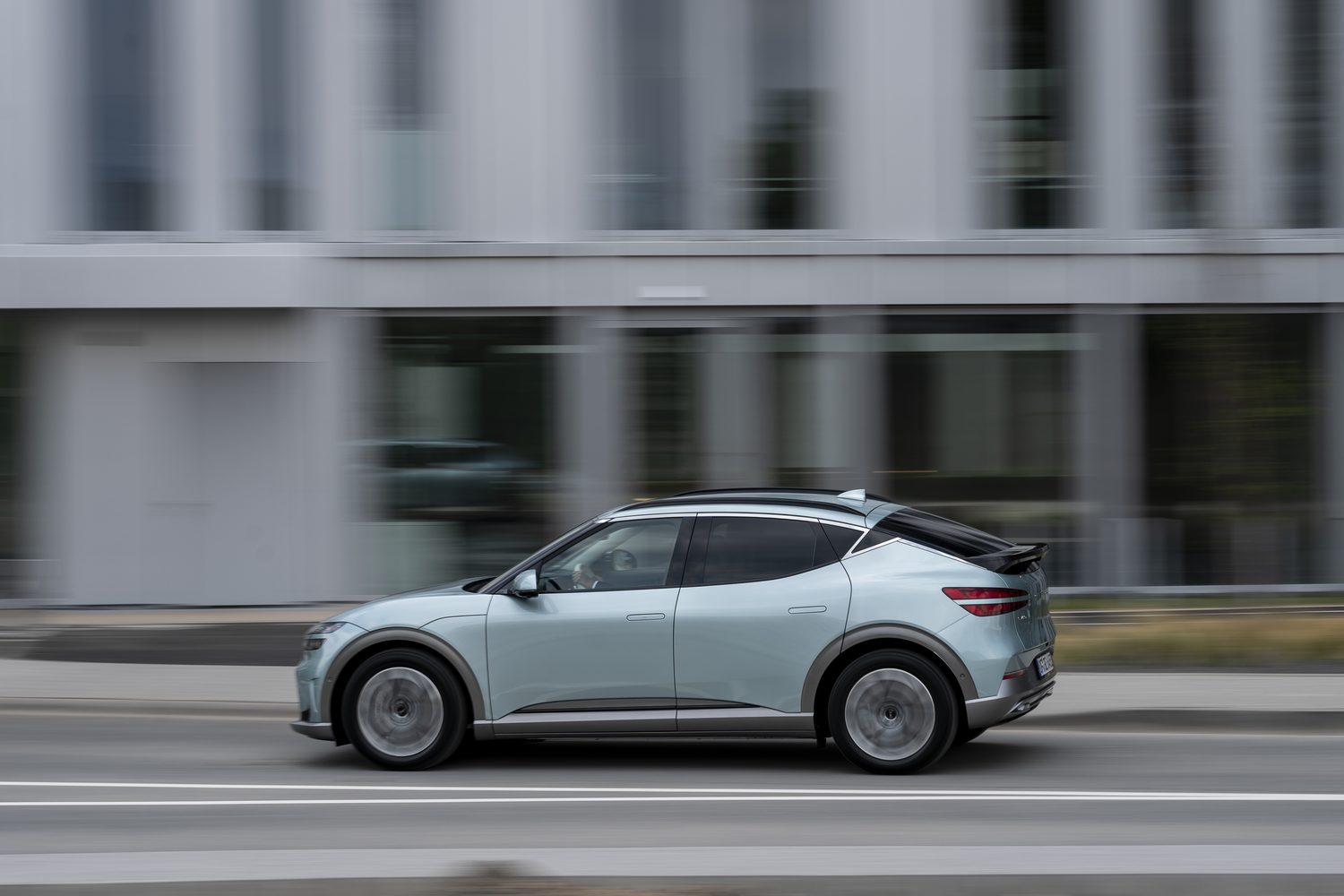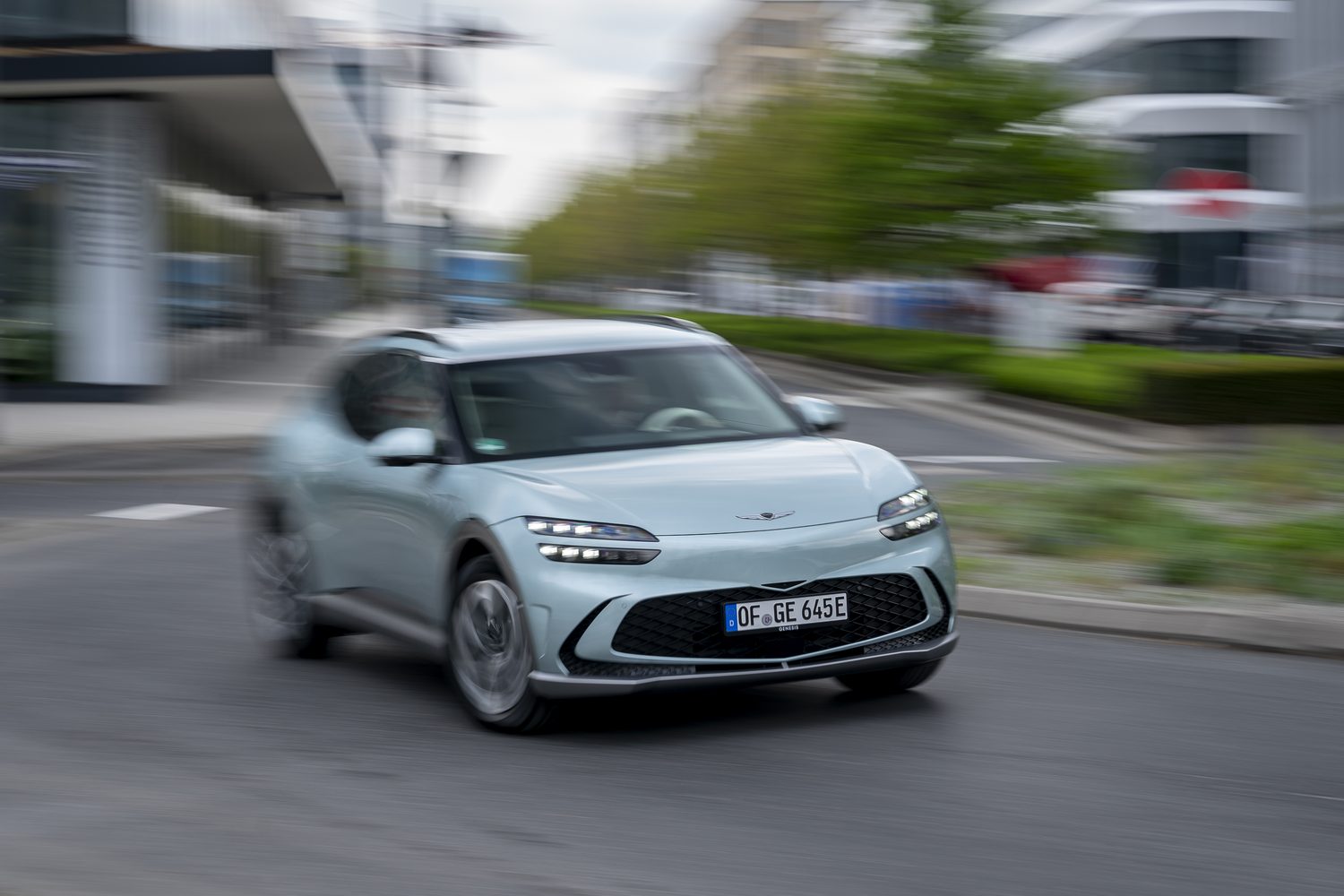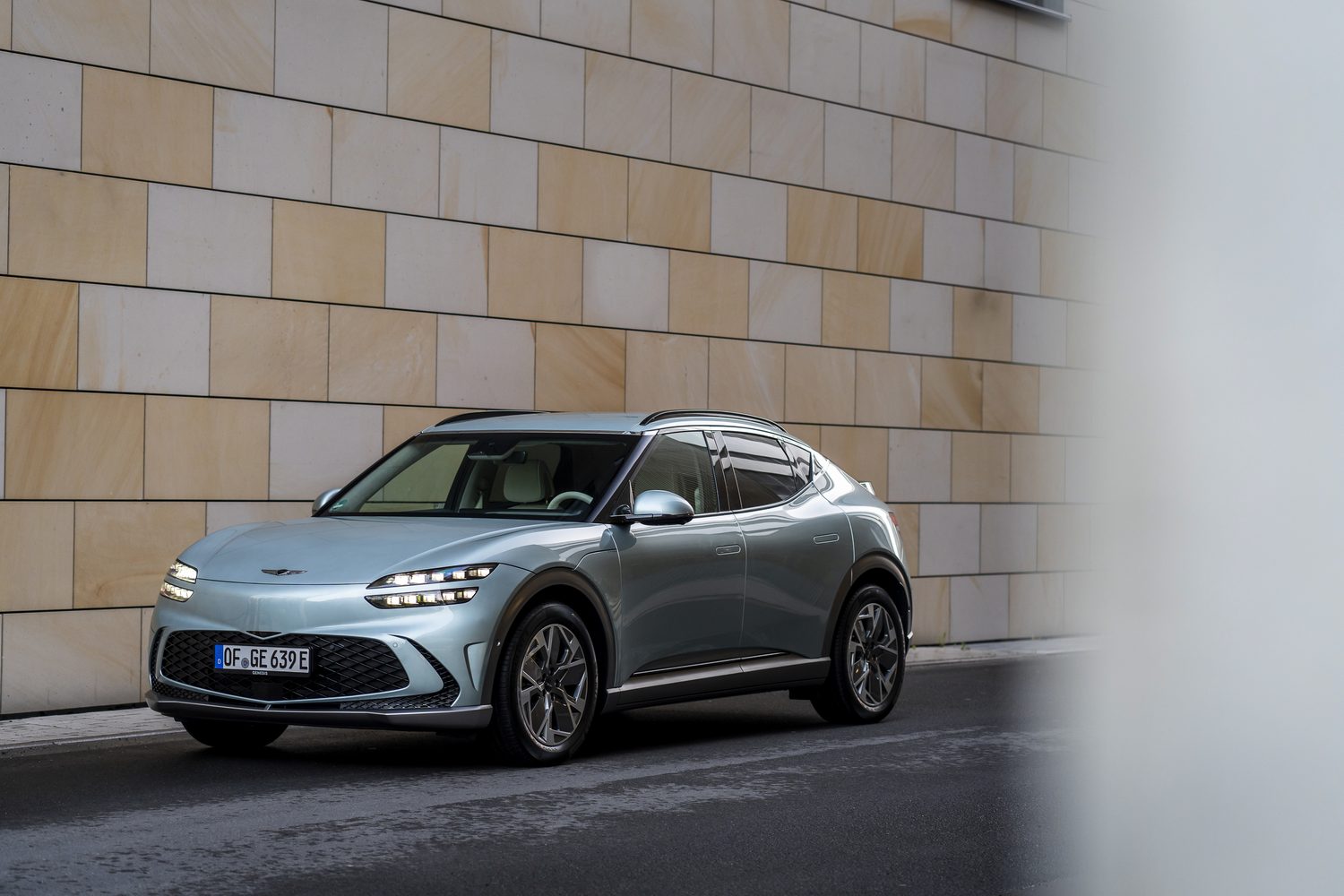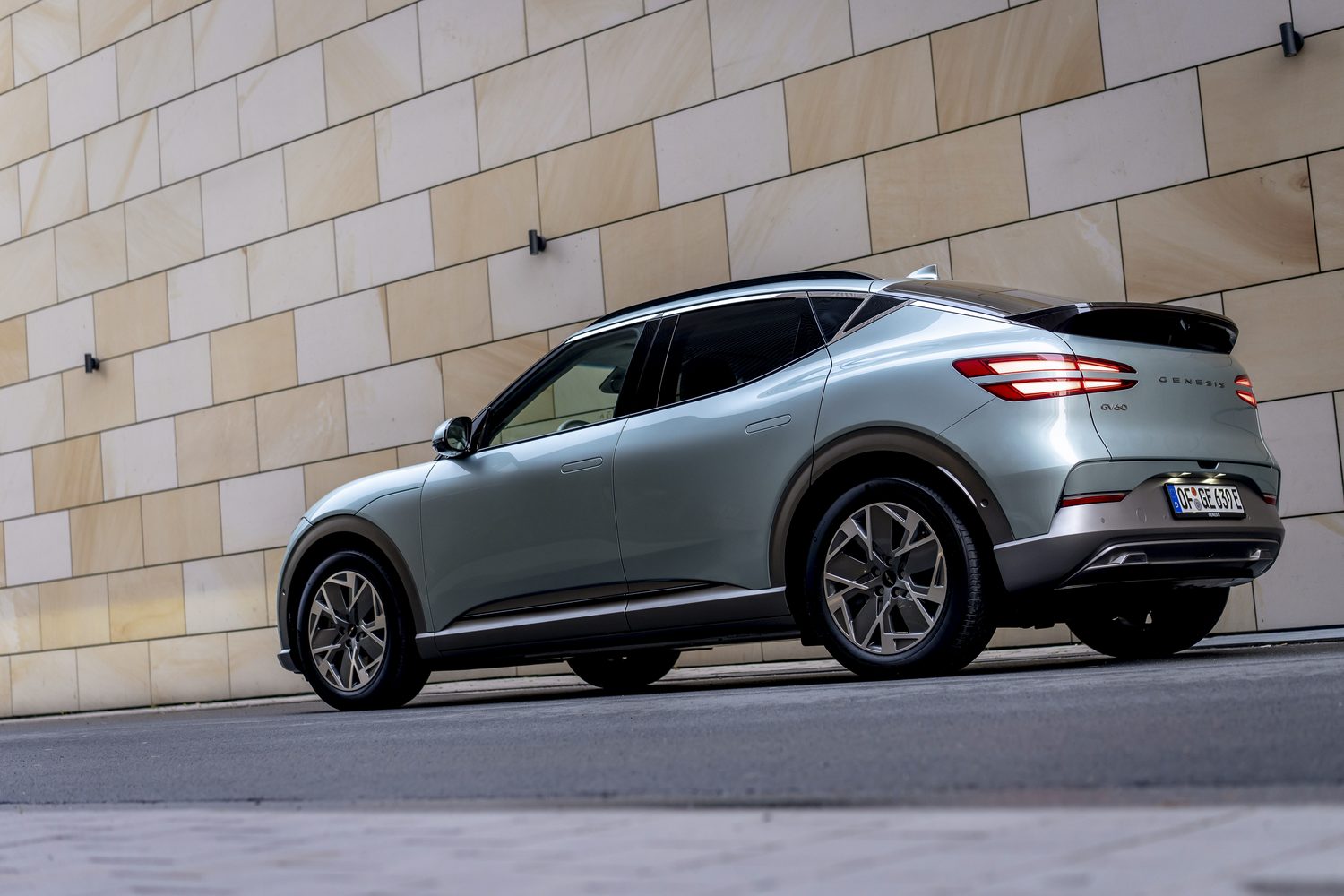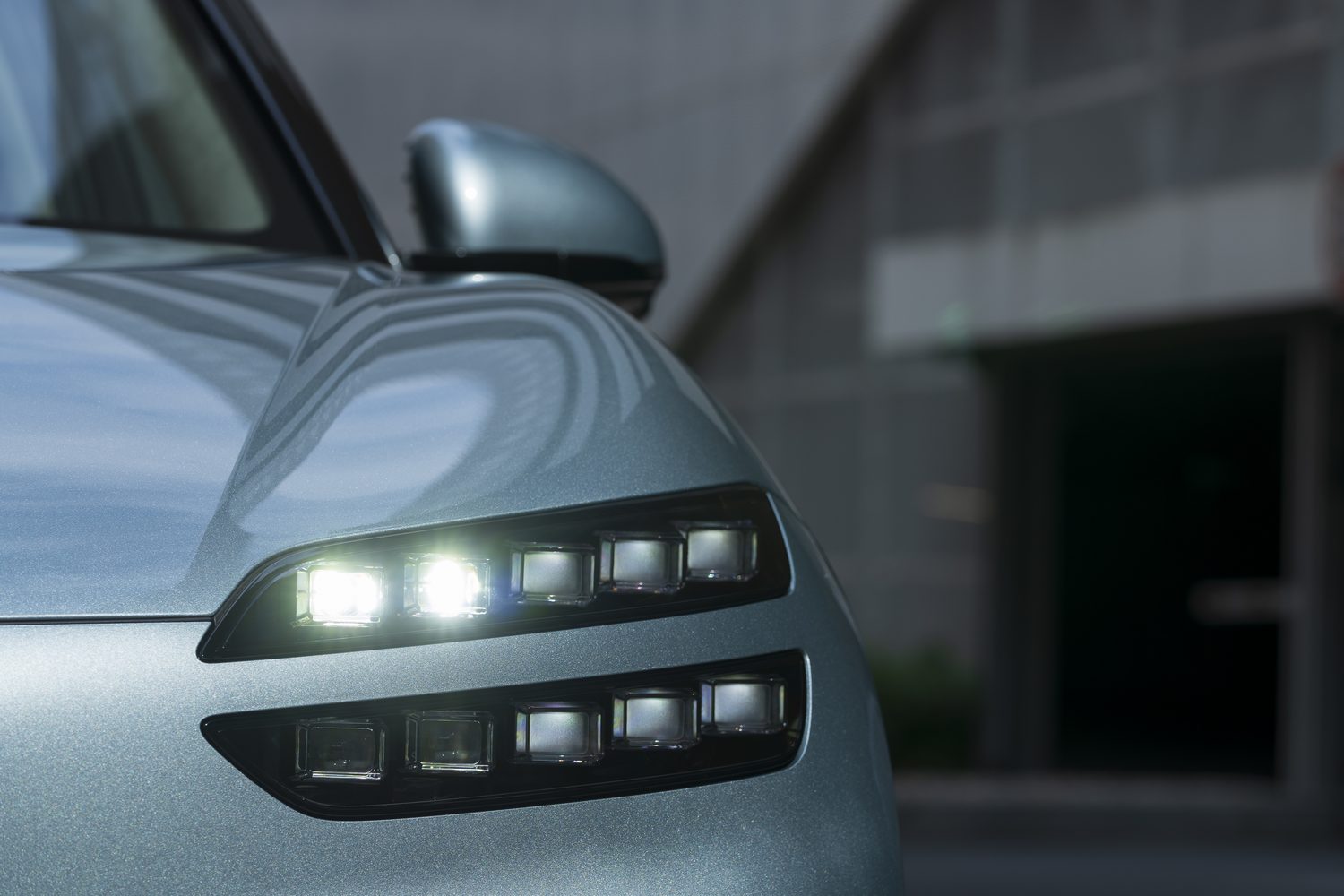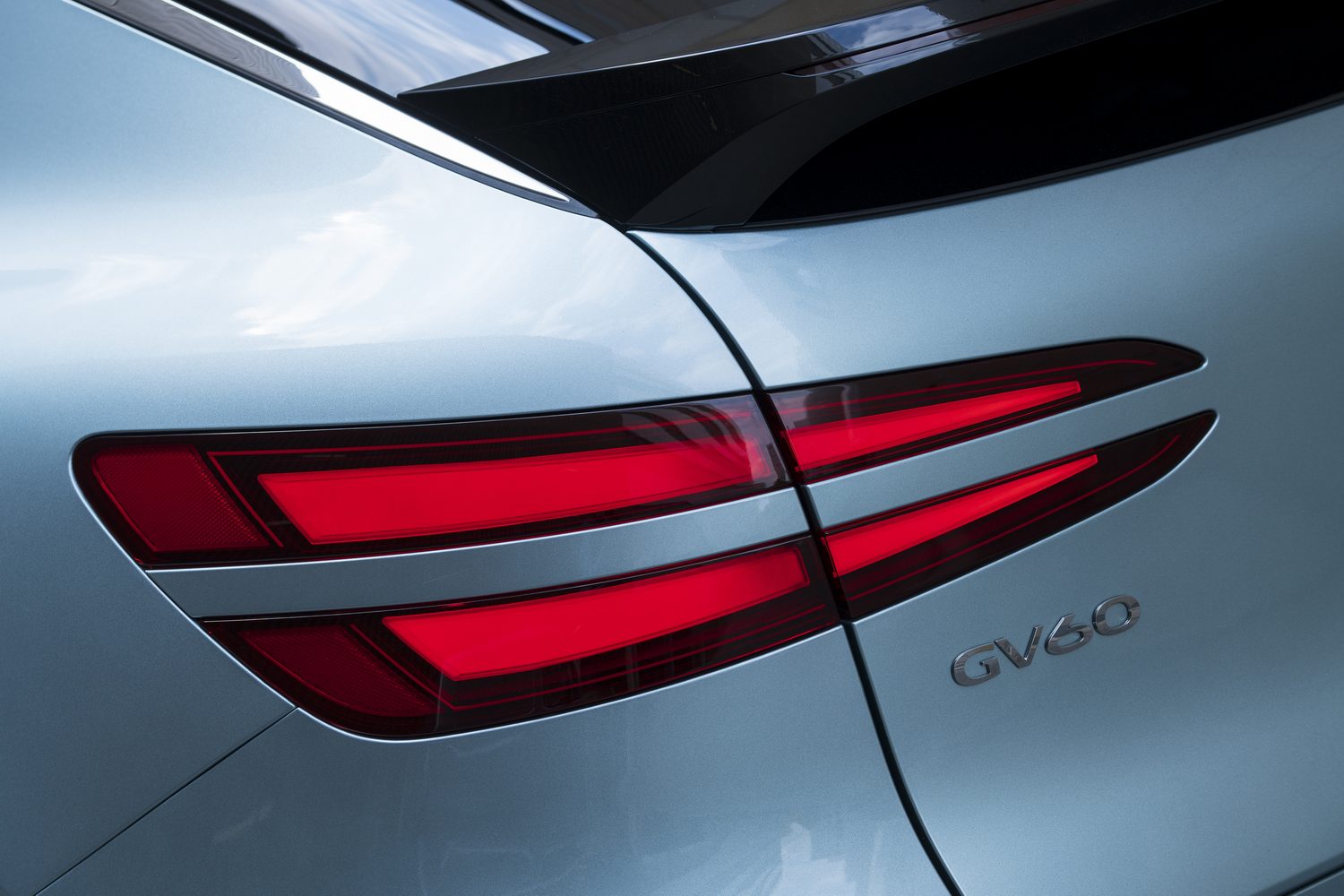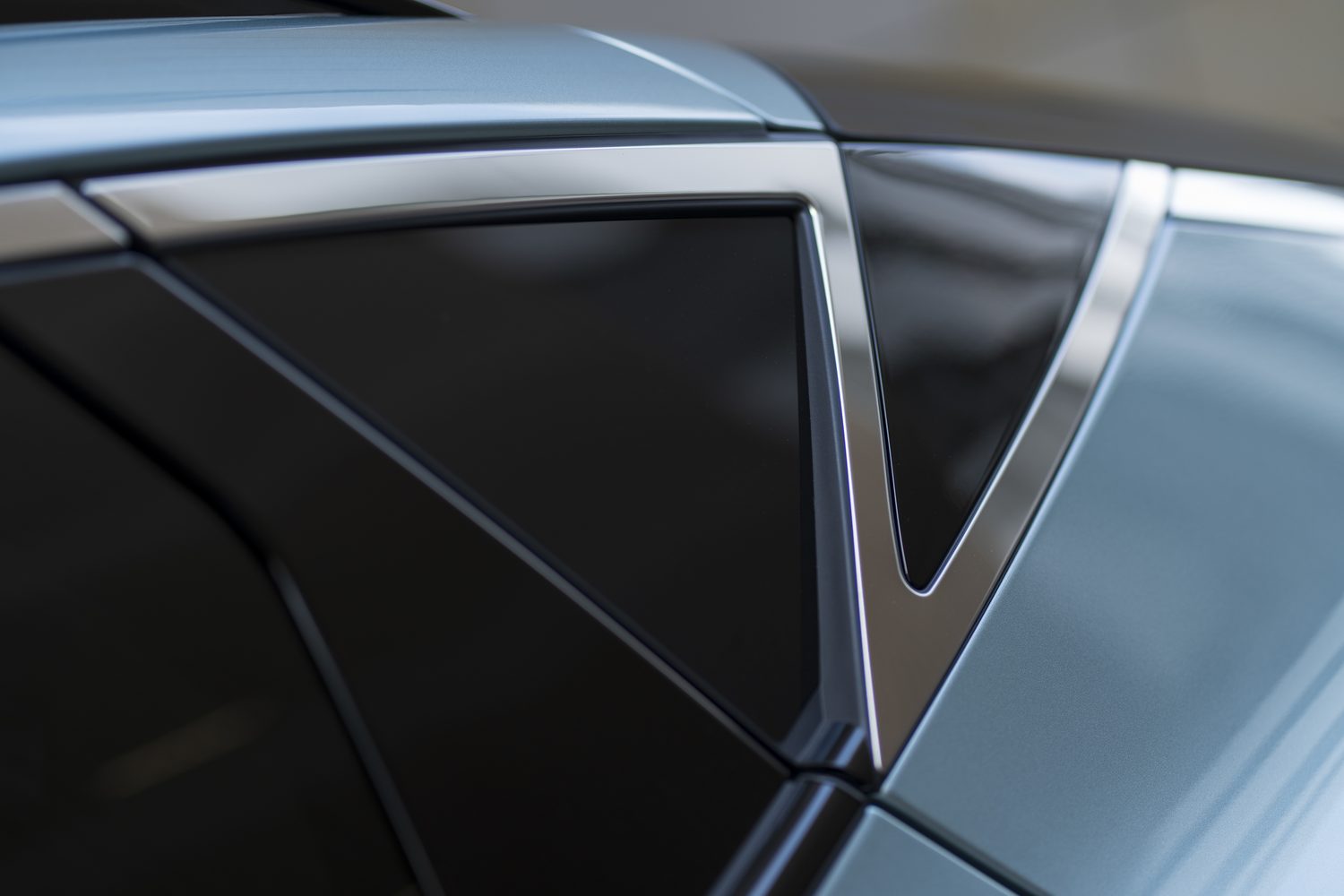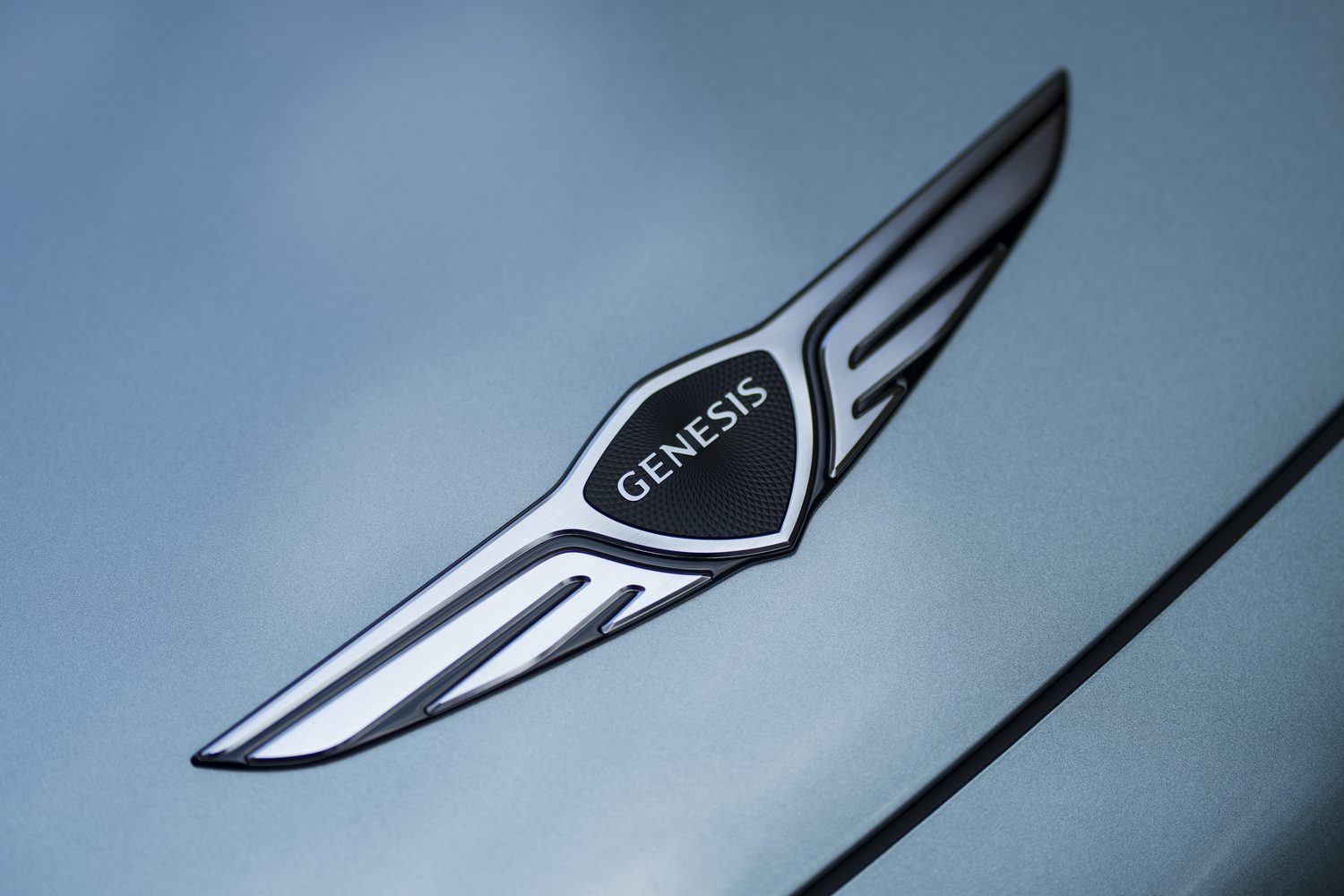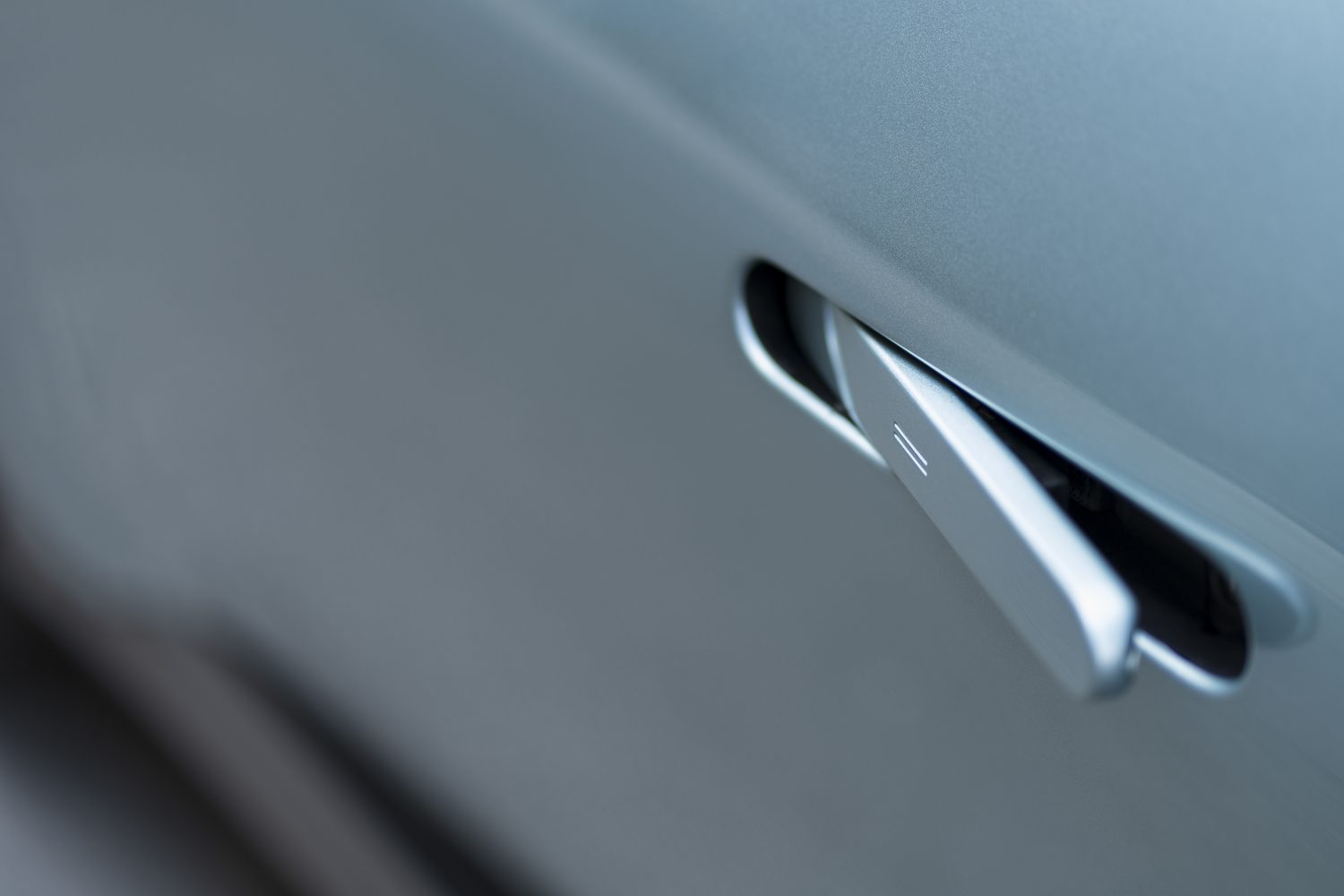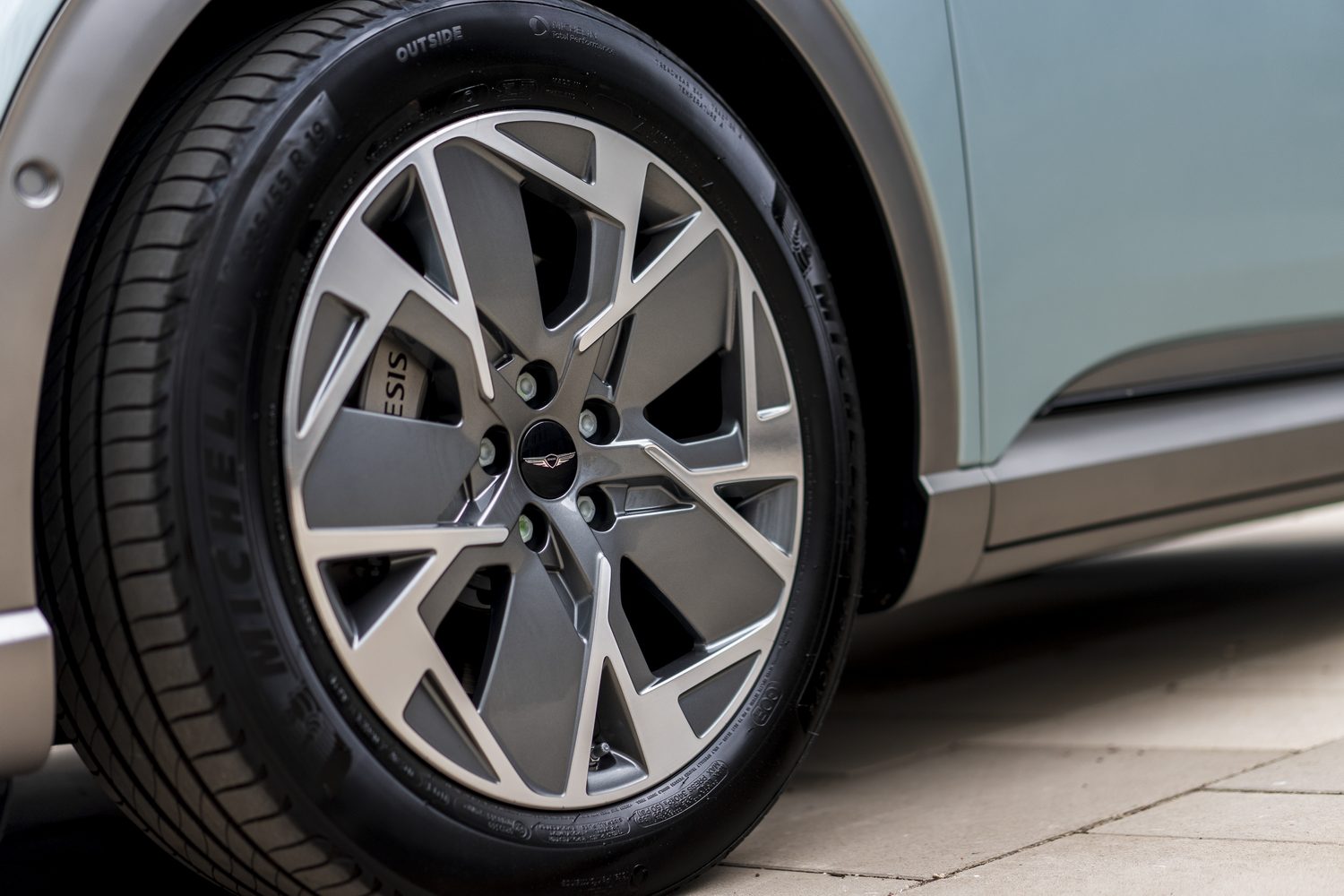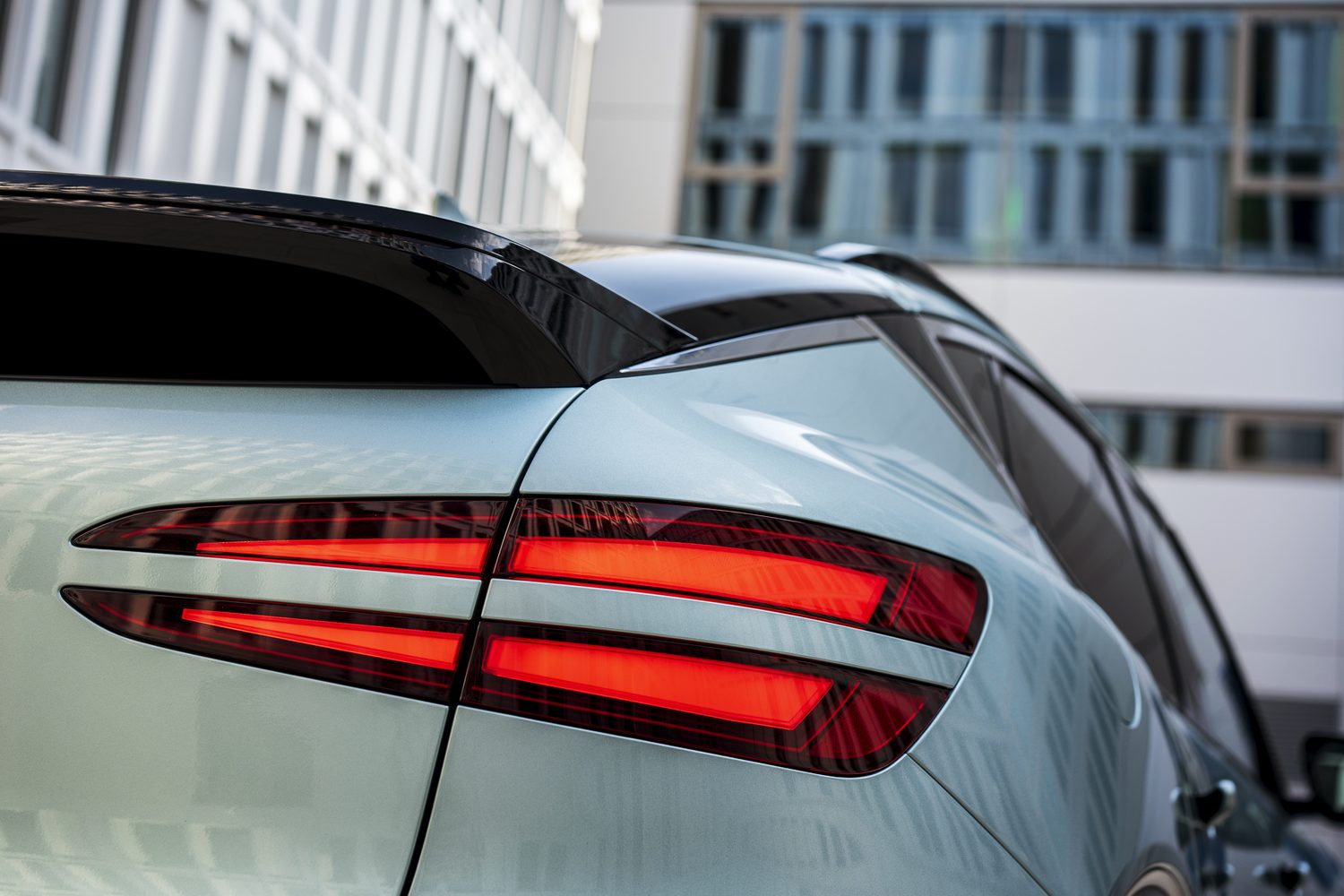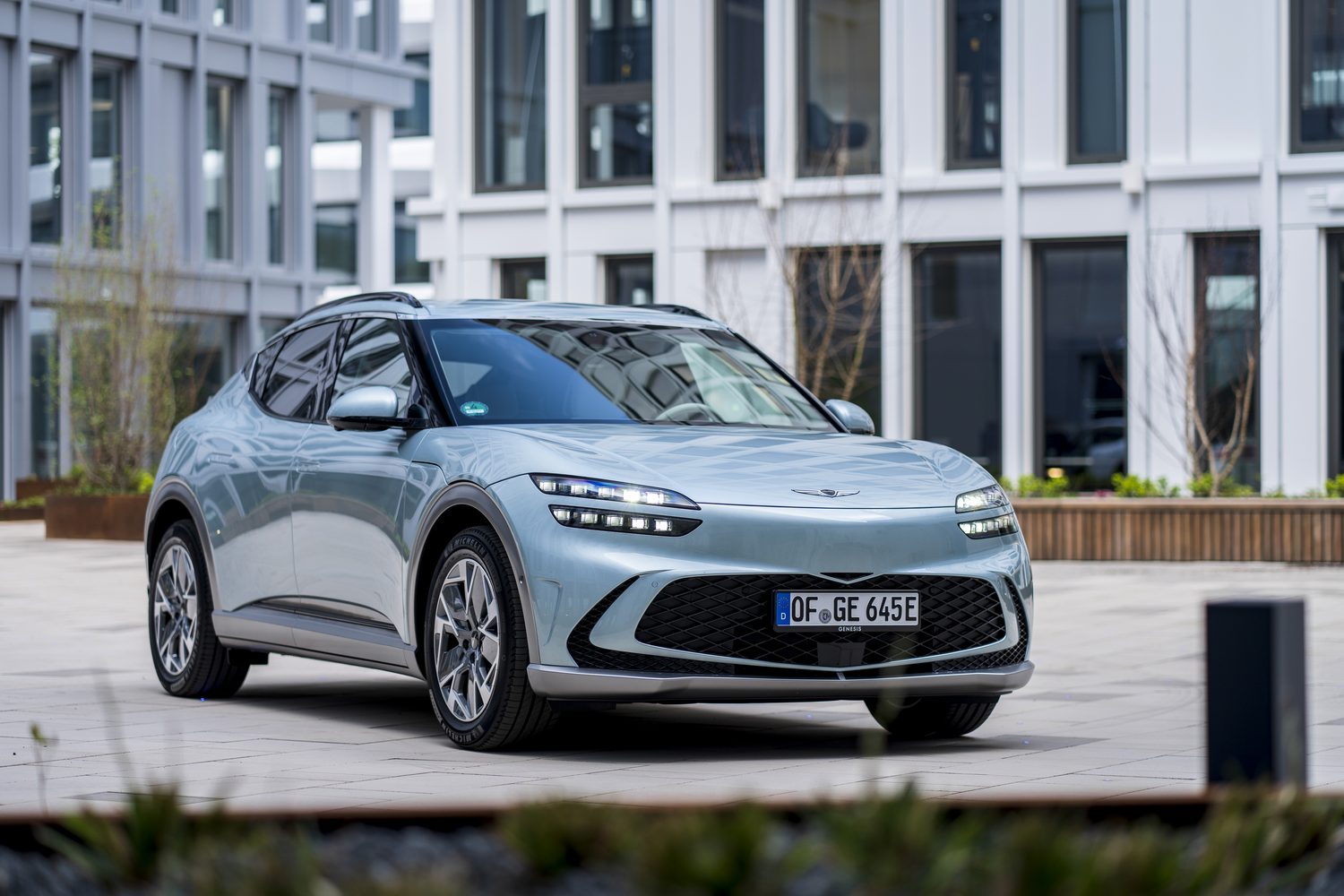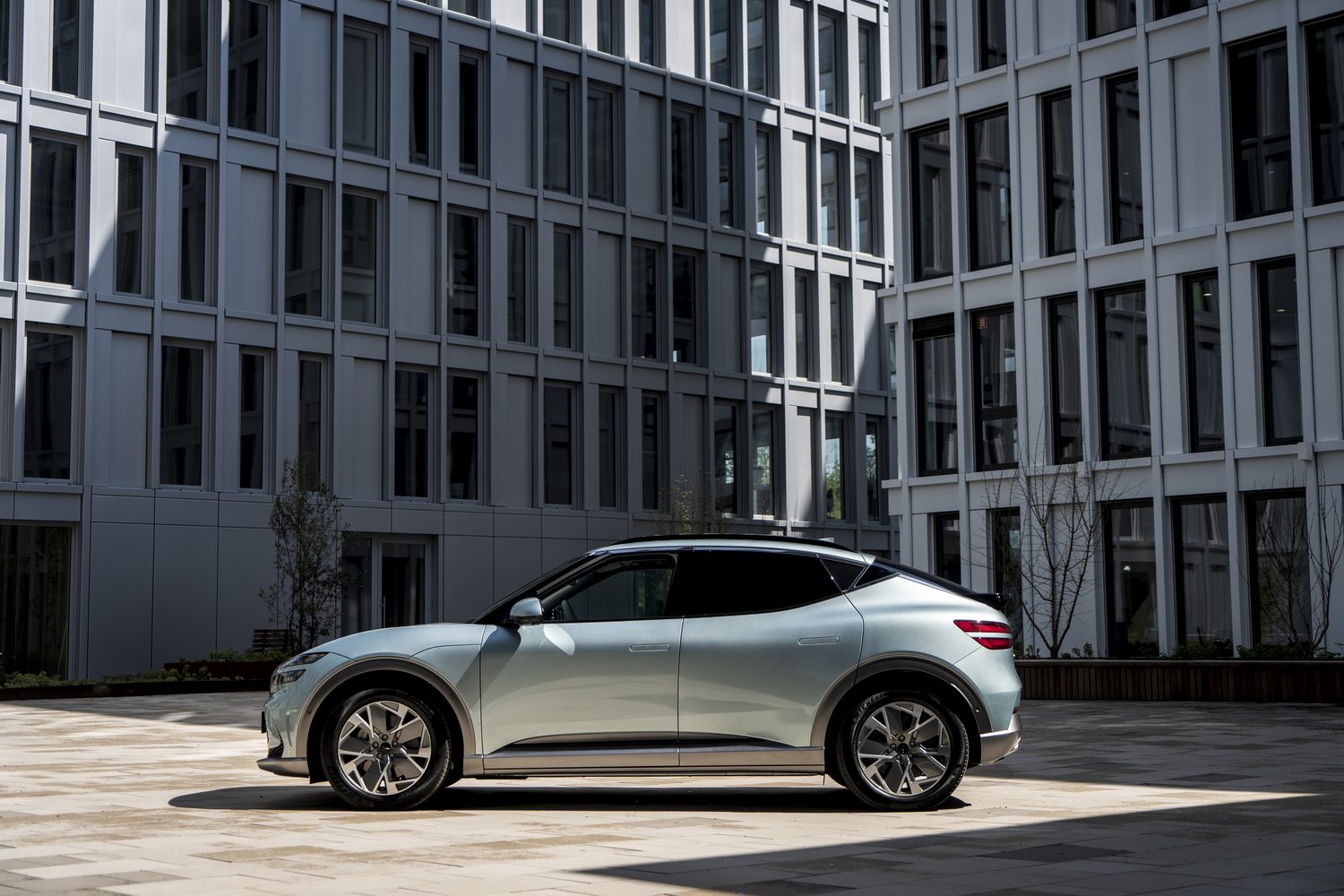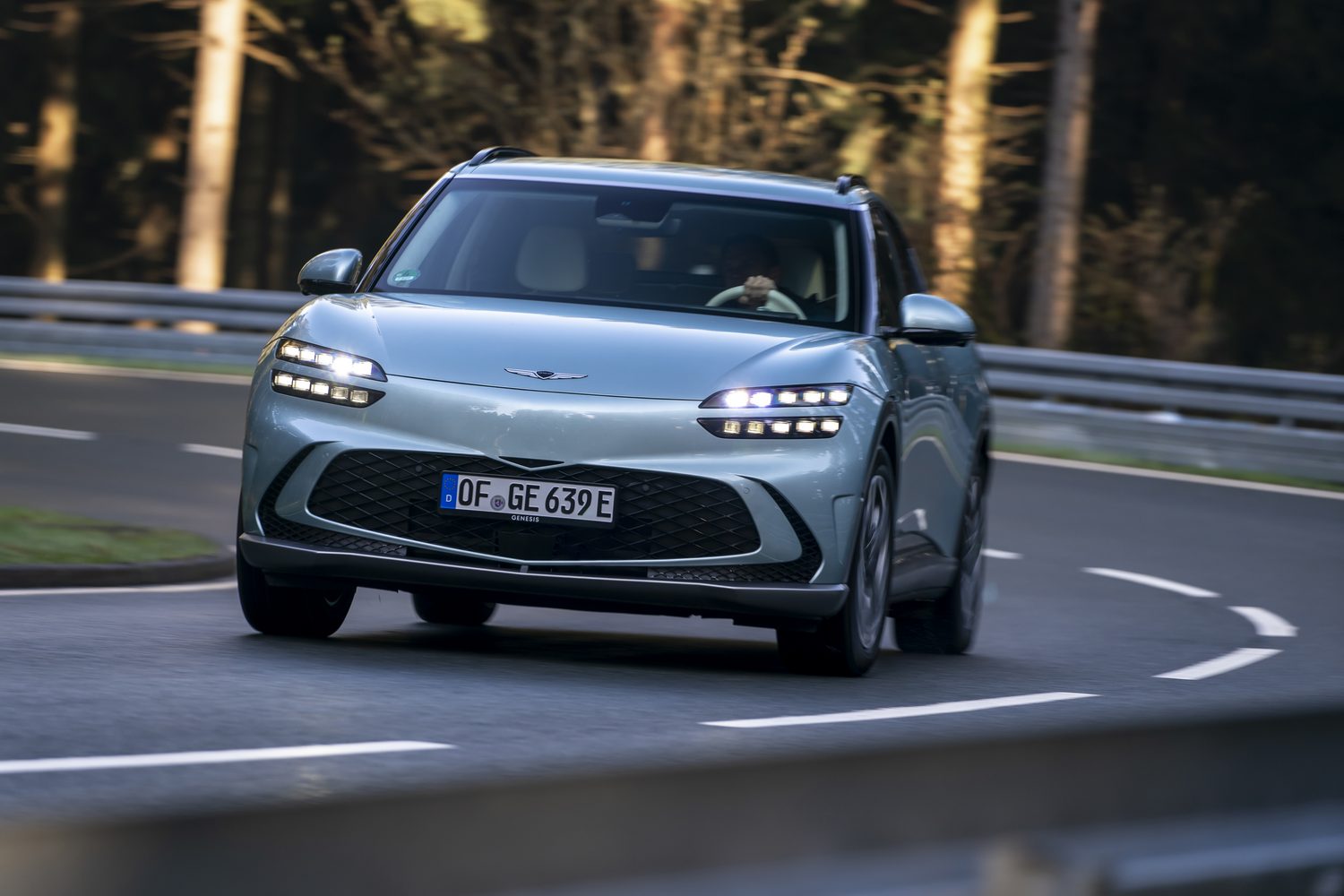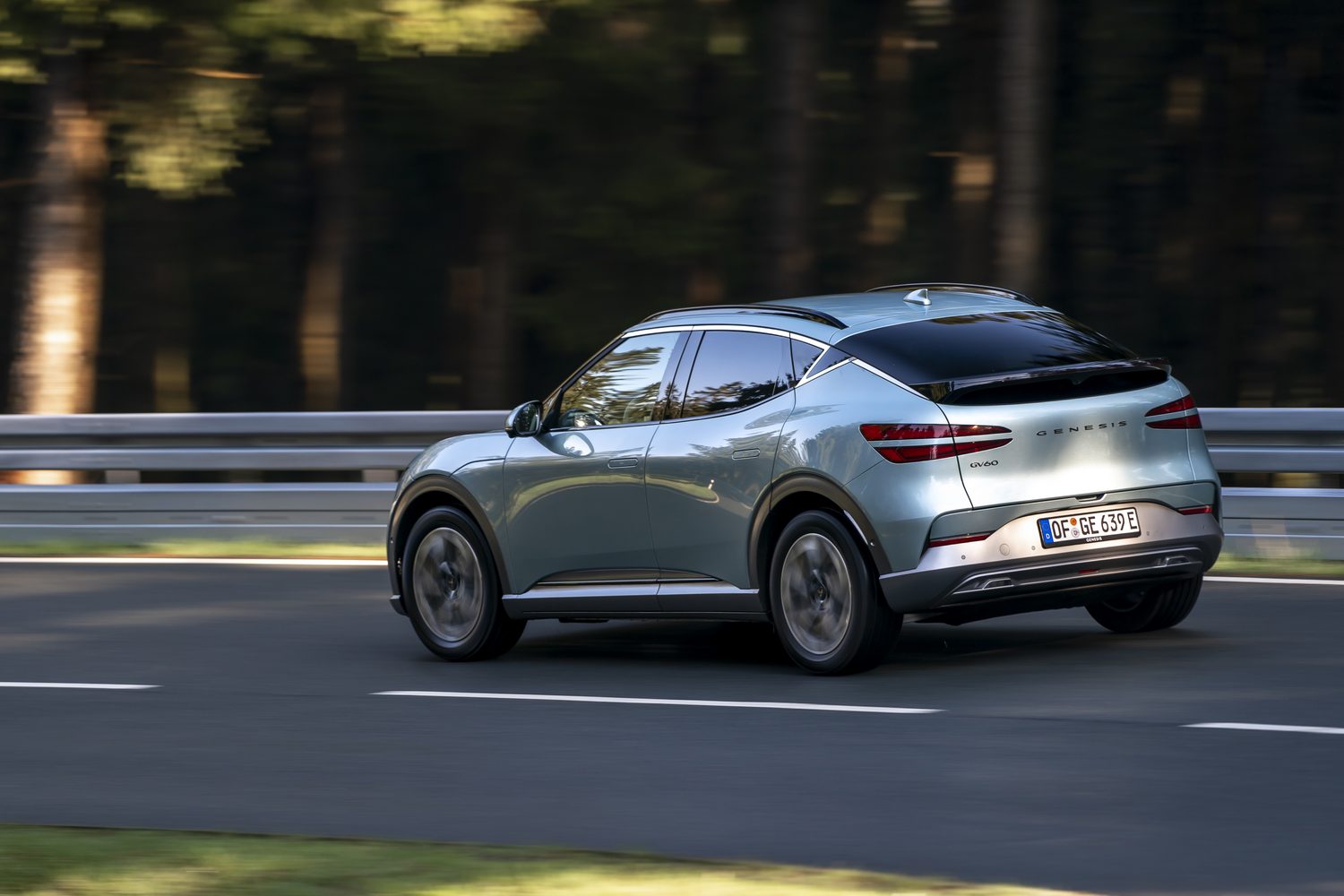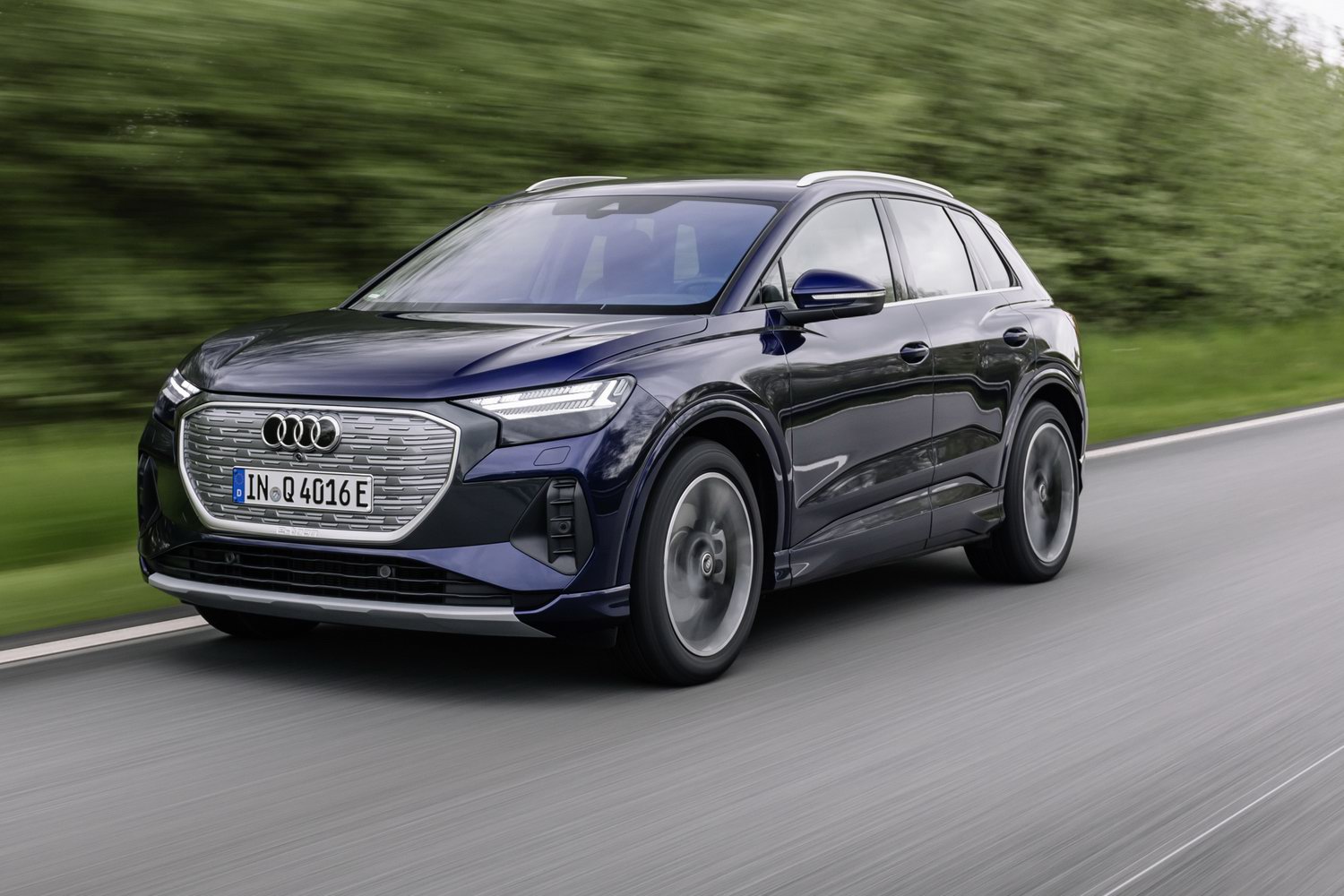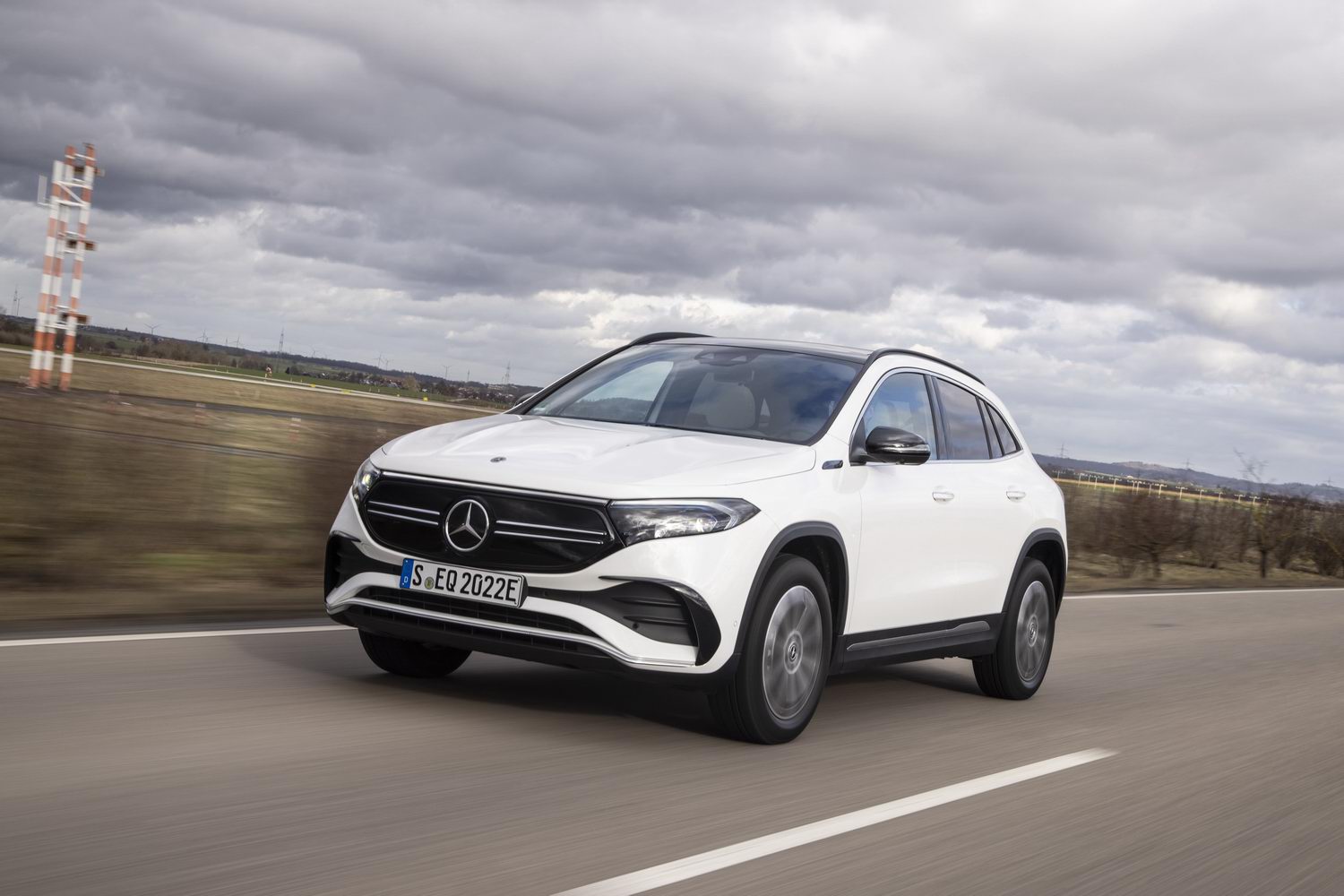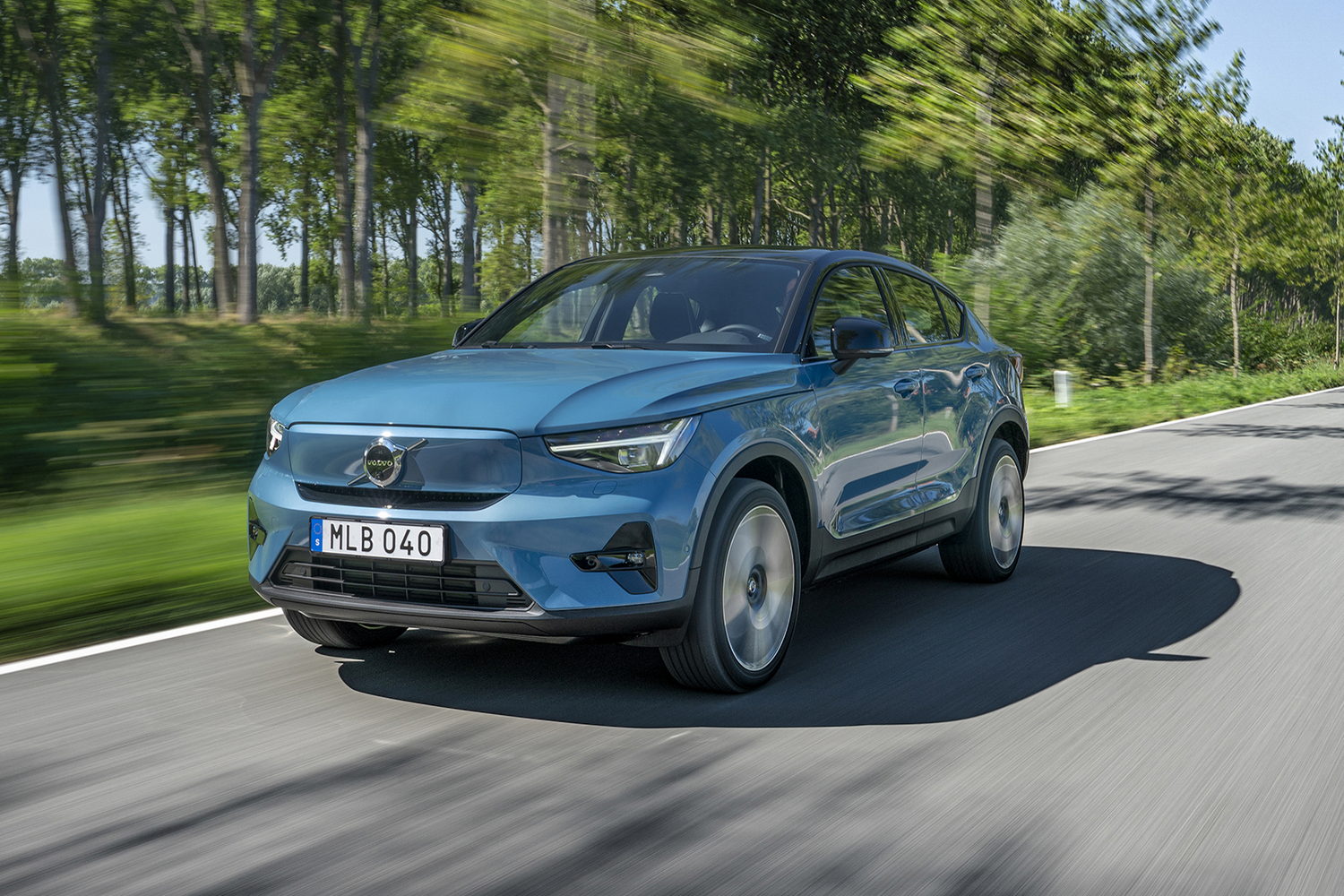Genesis might be a newcomer in the premium market (and not yet available in Ireland), but it has already shown us it can build SUVs that can challenge better-known luxury brands. Hot on the heels of the impressive GV70 is the GV60, a smaller, battery-electric SUV designed to challenge the Mercedes-Benz EQA and Volvo C40. We tried the long-range, entry-level Premium model to find out whether the GV60 is as worthy a contender as its bigger brother.
In the metal
The Genesis GV60 is one of those cars that manages to be quietly good looking without crossing the line of overt beauty. It won't blow you away, but the more you look at it, the more convinced you become. It's just hard to put your finger on why that is. Perhaps it's the overall shape, which seems vaguely reminiscent of the Hyundai Veloster. Although the GV60 is touted as an SUV, it has that stocky, hunkered-down, coupe-style design that gives it a very different image to any of its rivals.
Or maybe it's the details, such as the split lights at the front and rear, or the lightning bolt design on the side window trims. The flush door handles are a nice touch, too, and they also mean there's less drag. But if you want to optimise the aerodynamics, the top-of-the-range Sport Plus is the car to have. That version comes with digital door mirrors that swap the Premium model's conventional mirrors with cameras that have a larger field of view and cut through the air more cleanly. They take a bit of getting used to, but they seem to work reasonably well.
Just like the rest of the GV60's interior, in fact. Cabin design is one of the best things about all Genesis's models so far, and the GV60 is yet another brilliant example. Buttons are few and far between, but Genesis has retained the climate control switchgear (yippee!) and integrated it cleanly into the design. In pictures or in the flesh, the whole cabin looks great, and it feels equally good.
Material quality is generally excellent, and the way in which every panel has been fitted together is exemplary. The switchgear feels good, too, and the car feels as though it'll stand up to a lifetime of use and abuse.
But there are exceptions to those sweeping generalisations of the GV60 cabin. The dashboard fascia, for example, feels a bit cheap, as does the 'Crystal Sphere' drive selector arrangement, which flips over to reveal a cog-like selector when the car is ready to drive. Similarly, the mirror adjustment switch looks like a neat addition on the driver's door, but the speaker on the opposite door is a fake, and the trim can be unscrewed to reveal a gap where a left-hand-drive car would have its door mirror switch.
Aside from those minor issues, though, the GV60 definitely feels premium. It's more upmarket than a Volkswagen ID.4, for example, and quality is mostly up there with the likes of Mercedes-Benz, Volvo and BMW.
So too is the infotainment system. As is the modern way, Genesis has dumped analogue dials and gone for an almost completely digital dashboard, combining a digital instrument cluster and a massive touchscreen infotainment system. Sensibly, though, Genesis has added a control wheel on the centre console, which is a much less distracting way of operating the system once you're on the move.
But even if you just use the screen as a touchscreen, you'll find it better than a lot of other premium brands' offerings. It isn't the snazziest system on the market - in fact it's basically an upgraded version of the systems used to great effect in modern Kias and Hyundais - but it looks sharp and clear, the displays are modern and logical and it responds really quickly to any inputs. What more do you really want?
Well, some interior space would be nice, and the Genesis comes with some of that, too. Front-seat passengers are well catered for, and those in the back won't suffer for a lack of headroom, either. Yes, that swooping roofline will cut space slightly for the very tallest passengers, but there's plenty of space for most. A bigger problem is the rear spoiler, which cuts the rear windscreen in two and reduces visibility for the driver.
More positive is the amount of boot space. At 432 litres, it doesn't sound that impressive (a VW T-Roc has a 445-litre boot, for instance), but it's much more competitive in the electric car arena. That makes it much bigger than the Mercedes EQA's 340-litre load space, and it's a slight improvement on the Volvo C40's 413-litre boot. Better still, there's a 53-litre 'frunk' at the front, although the twin-motor Sport and Sport Plus models only get 20-litre spaces under the bonnet.
Driving it
The three-tier GV60 range doesn't just offer different levels of equipment, but also different amounts of power and very different driving experiences. The 'entry-level' Premium model we drove will likely be the choice for most customers, offering the longest range while also costing the least money.
All three versions come with the same 77.4kWh battery pack, which includes a battery pre-conditioning system to combat range-draining cold weather by warming the battery up while it's still plugged into the charger. That should mean the official 517km range is more accessible more of the time, although we found such a distance slightly optimistic on our test drive.
That might be because even this basic version of the GV60 offers performance in spades. With just one electric motor powering the rear wheels, it has 229hp and the lowest kerb weight of any model in the GV60 range. Admittedly, it still weighs almost two tonnes, but that's nearly 200kg lighter than the more powerful Sport Plus version. With that power-to-weight ratio, you're looking at a top speed of 185km/h and a 0-100km/h time of 7.8 seconds.
Although that sounds quite sporty, the GV60 is still pretty comfortable, with a chassis that blunts even the sharpest potholes and keeps everything smooth and stable in the cabin. Like most electric cars, it feels heavy, and it can slump into bumps a bit, but it's generally very comfortable. Yet despite that, it's still good in the bends. The steering lacks a little feel, but it's well weighted and there's plenty of grip from the big tyres. And although the car does lean a bit in corners, the heavy batteries are placed quite low in the car, so it doesn't roll about too much.
Opting for the top-of-the-range models will damage that lovely balance, however. The twin-motor Sport Plus model weighs about 10 per cent more than the Premium, and it has bigger alloy wheels, which combine to make the ride much firmer. It isn't dreadful by any stretch of the imagination, but it's noticeably less comfortable than the Premium model. And there's no great improvement in handling characteristics, although you do, rather bizarrely, get a drift mode...
The real advantage of the twin-motor cars is increased performance, although some might like the security of all-wheel drive, too. The Sport version has 318hp and 605Nm of torque, which is enough for a 5.5-second 0-100km/h time and a 200km/h top speed. Step up to the Sport Plus, however, and you get 490hp and a boost button, which gives you maximum power for 10 seconds. Use that, and it'll get from a standstill to 100km/h in a ballistic four seconds, before hitting a top speed of 235km/h.
The downside is a reduction in range. Whereas the Premium claims a 517km range on a single charge, the Sport will cut that to 470km, and the Sport Plus does 465km. And in the real world, we're probably talking about a good deal less. Even if you have the self-control to avoid using all the power at your disposal.
What you get for your money
Genesis has not yet come to Ireland in any official capacity, but you can still import a GV60 from the UK.
The range is divided into three separate models, each with its own powertrain. Even the entry-level Premium model is well appointed, however, with 19-inch alloy wheels, leatherette upholstery and the 12.3-inch infotainment system with navigation and the Apple CarPlay and Android Auto smartphone integration systems.
Keyless ignition, a rear-view camera and front and rear parking sensors are all standard, too, as are the automatic windscreen wipers and the electrically operated tailgate. Add a couple of option packs, such as the Comfort Seat Pack, which provides heated and ventilated front seats and a heated steering wheel, and you'll have everything you need without breaking the bank. Or spoiling the ride.
Summary
The GV60 goes straight in as Genesis's best car yet. At its best in entry-level guise, this is an electric SUV that feels as premium as its price tag and drives well to boot. It's more than capable of mixing it with the likes of Mercedes-Benz and Volvo, but luring customers away from those established brands is not easy, and as good as the GV60 is, Genesis is still largely unheard of - even among customers in its target market. It'll be interesting to see how it fares in the Irish market when it arrives.


